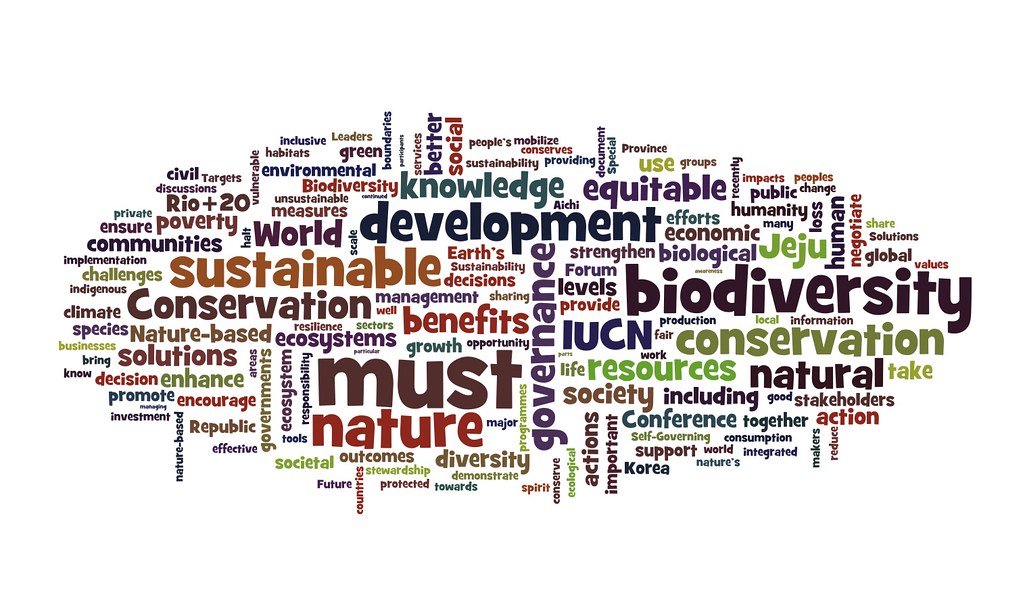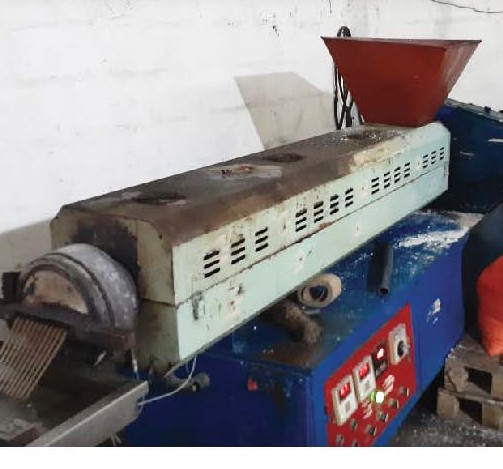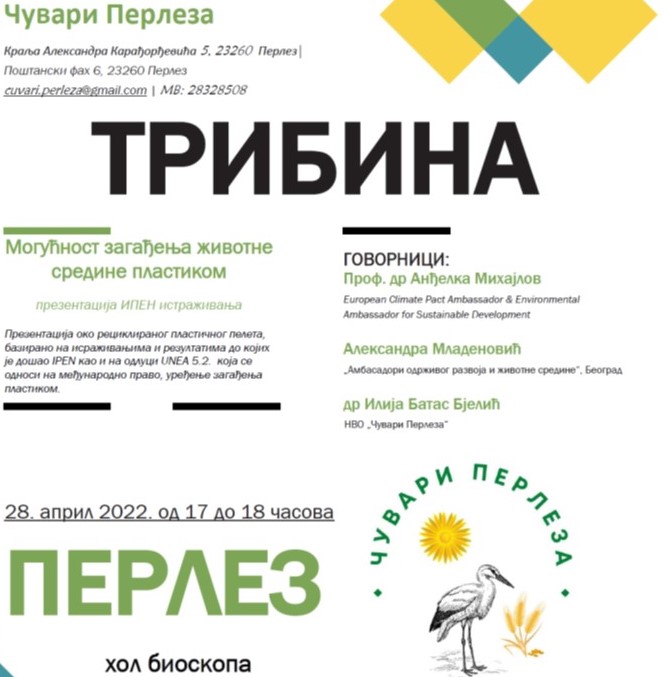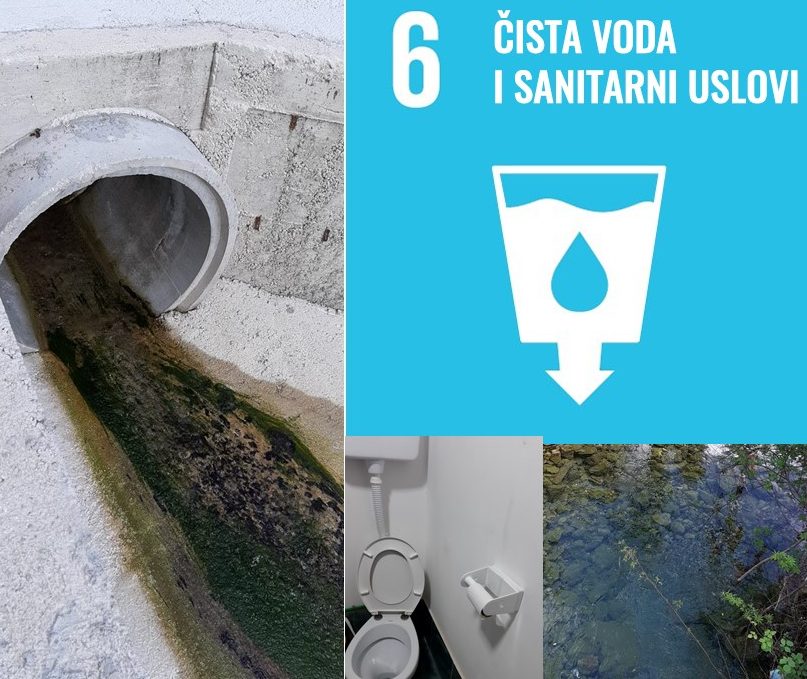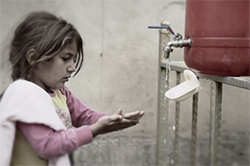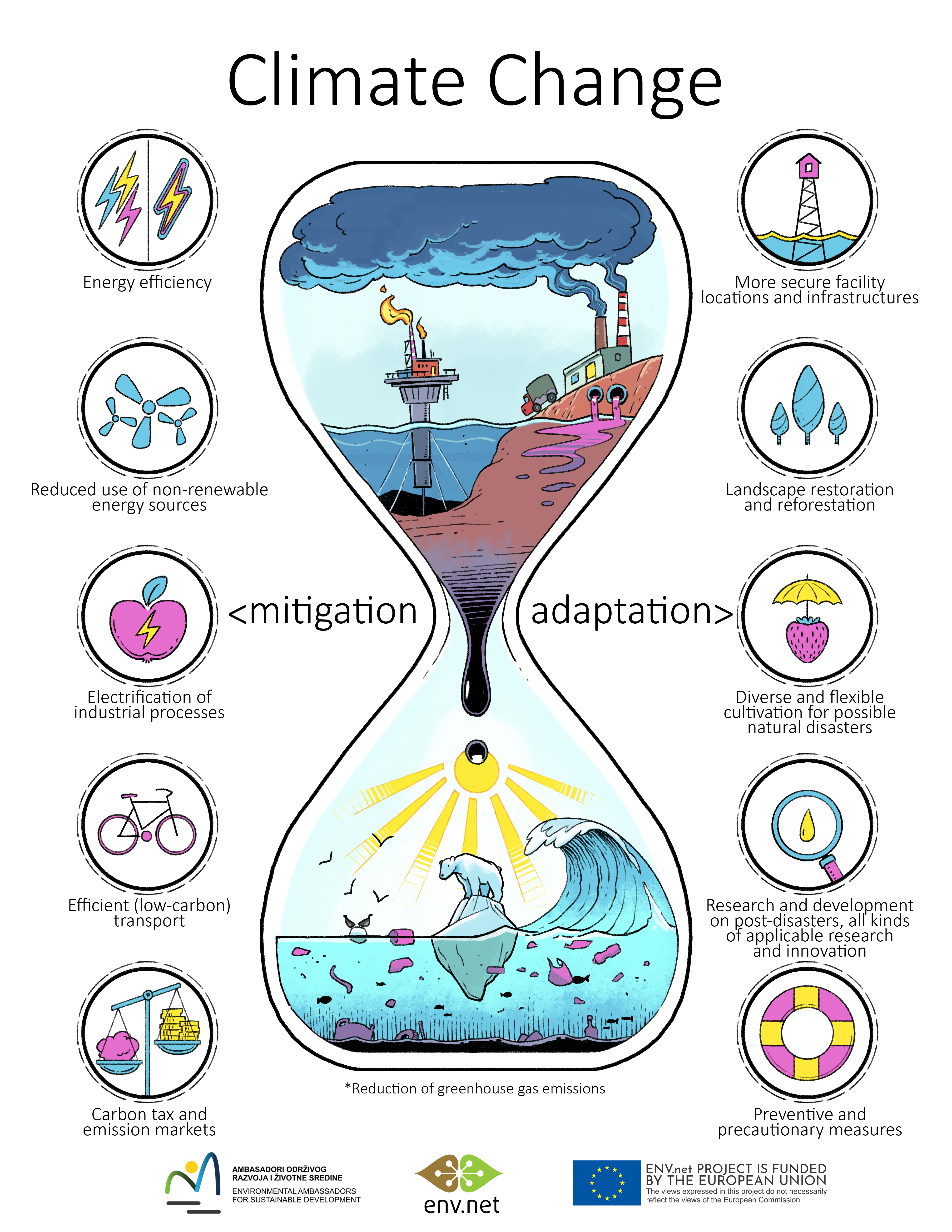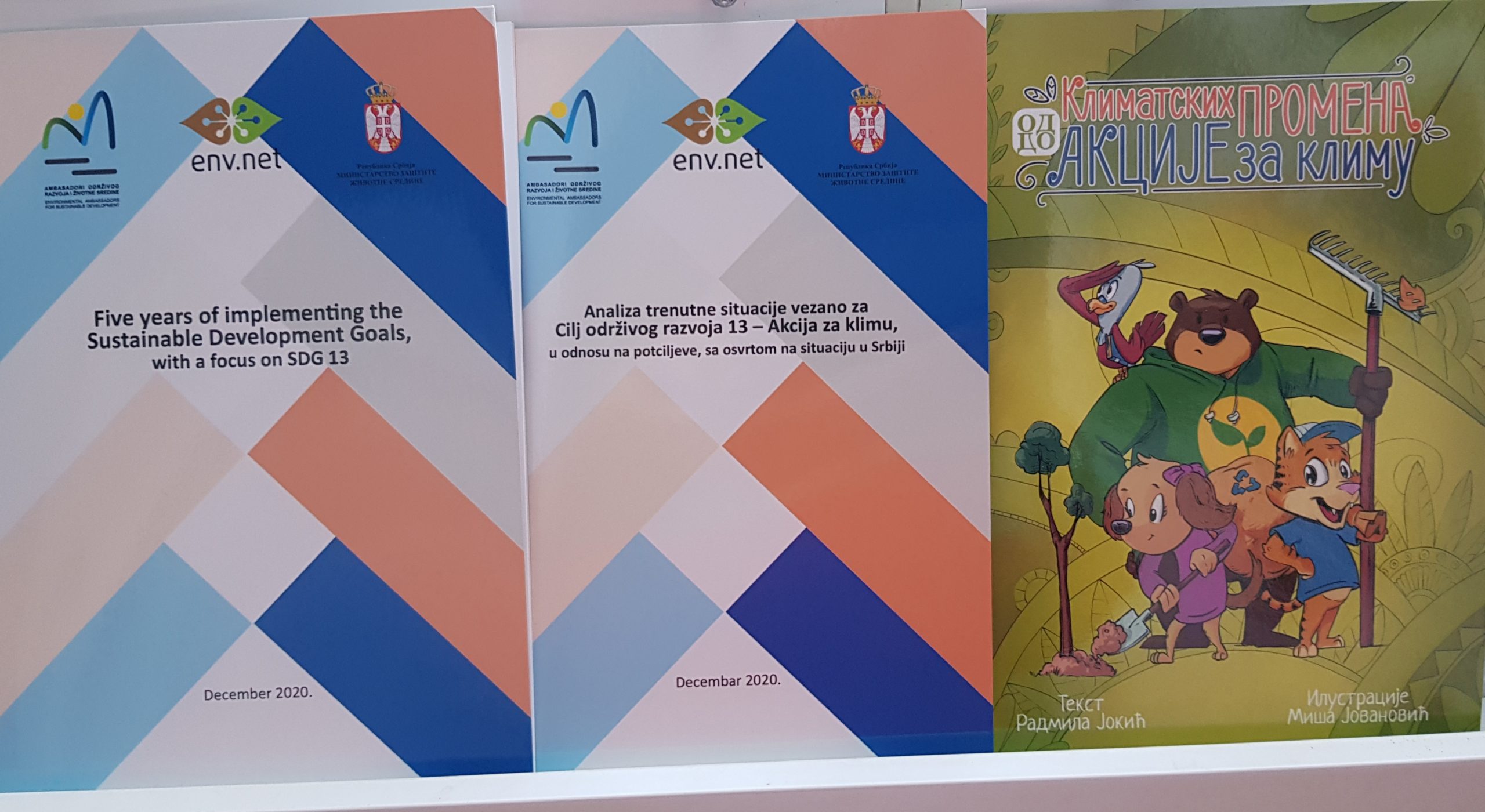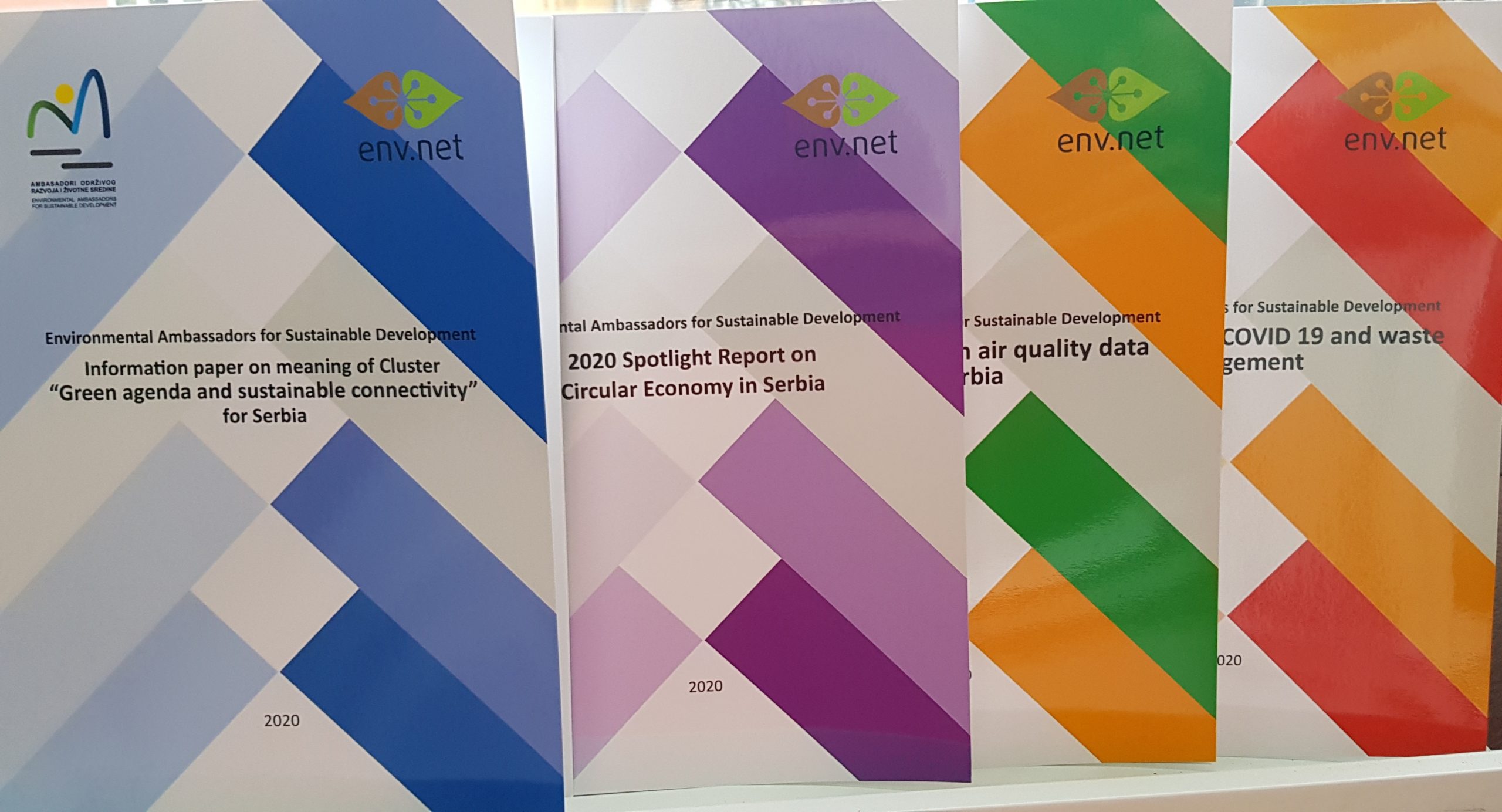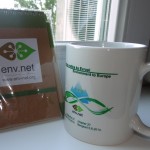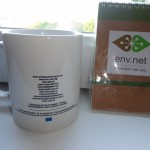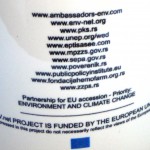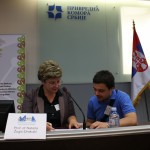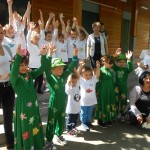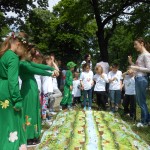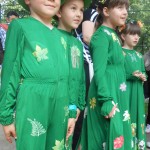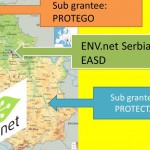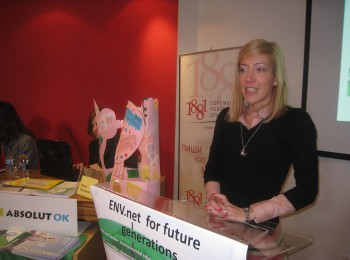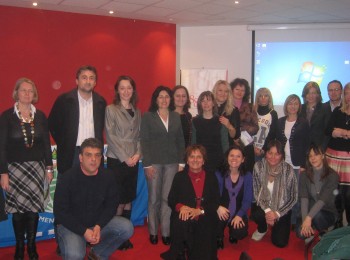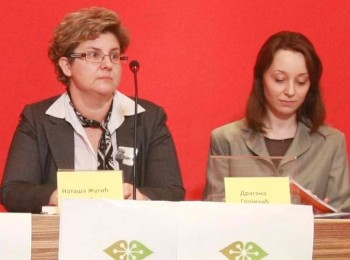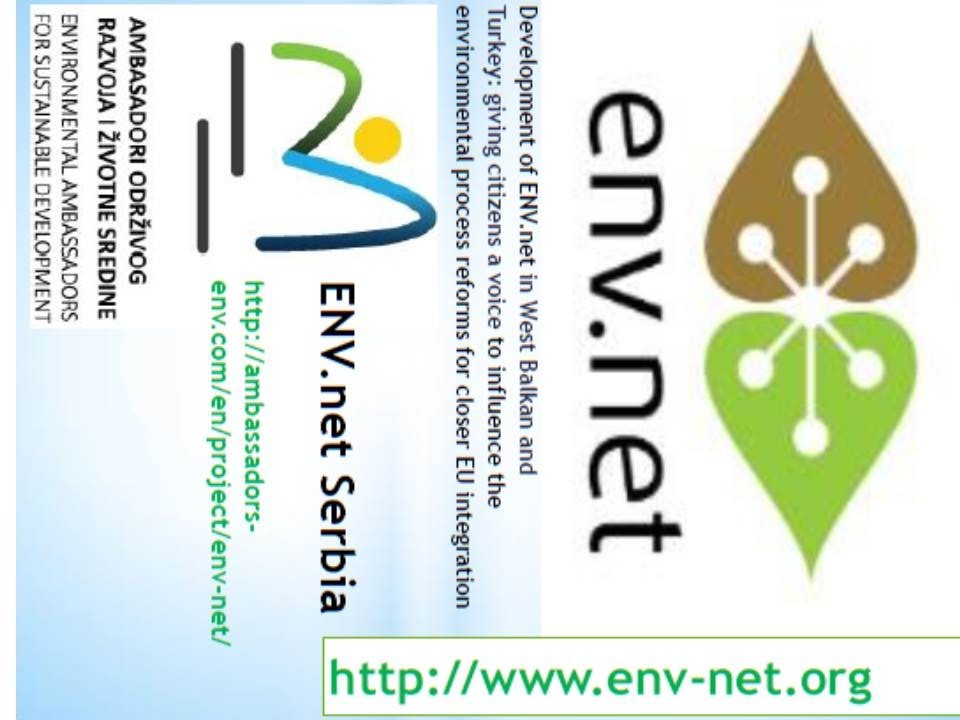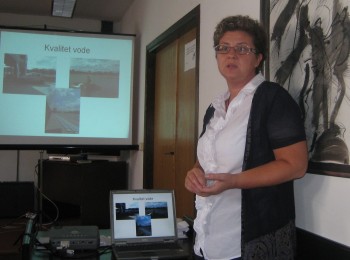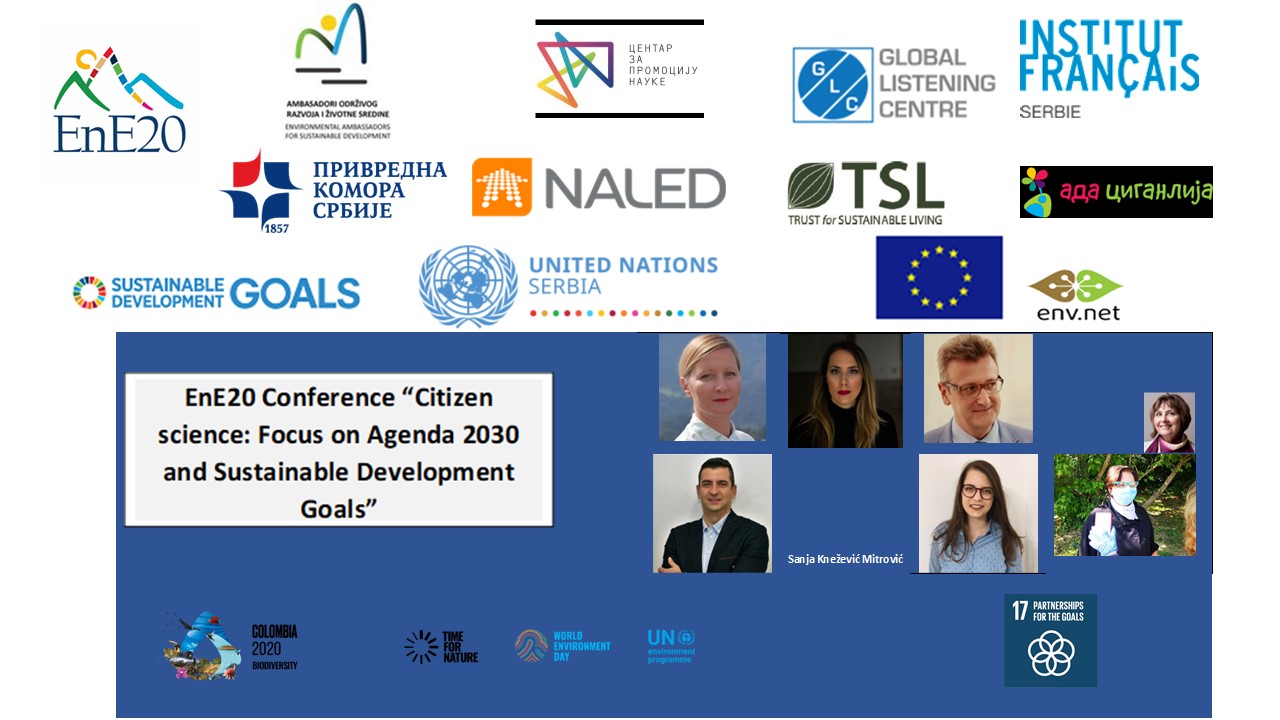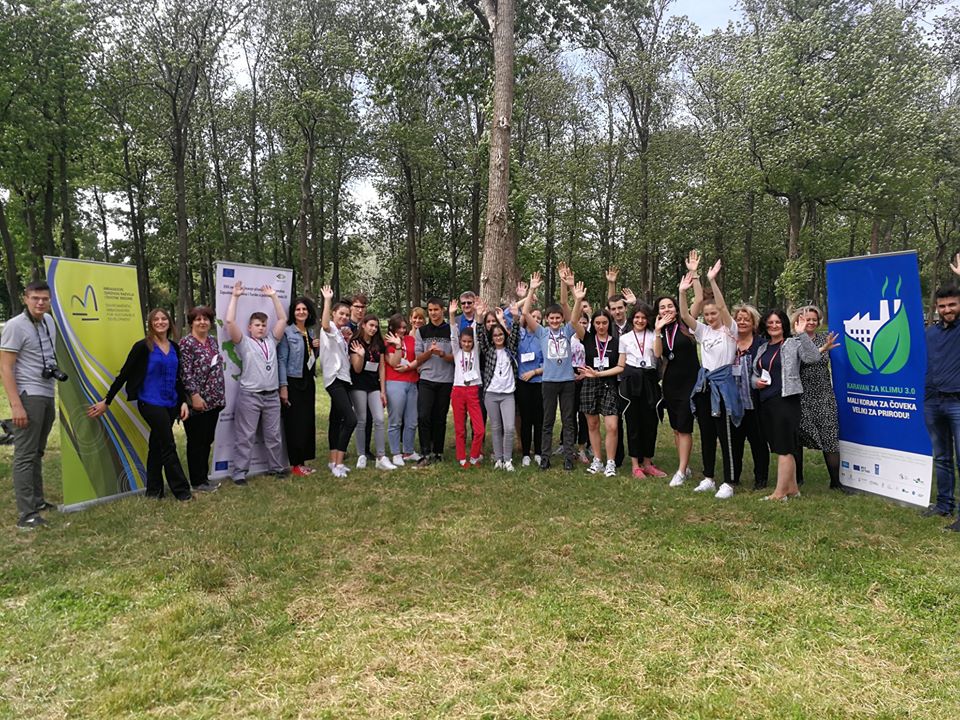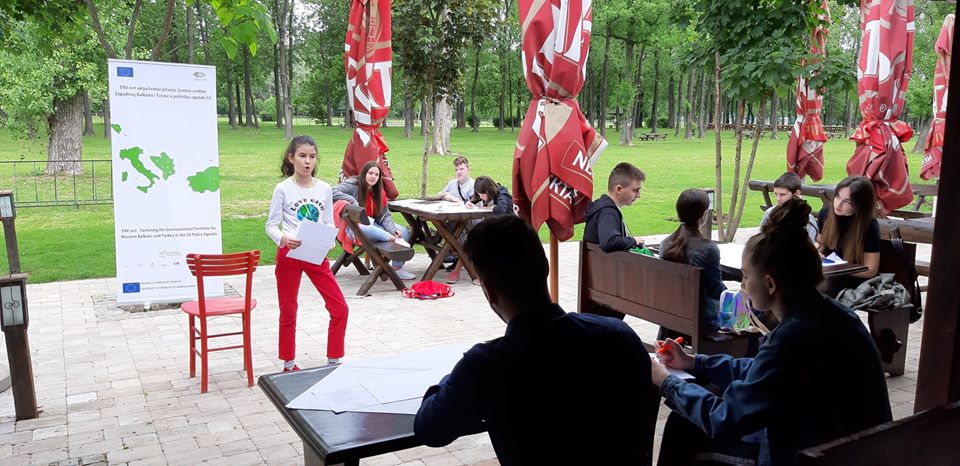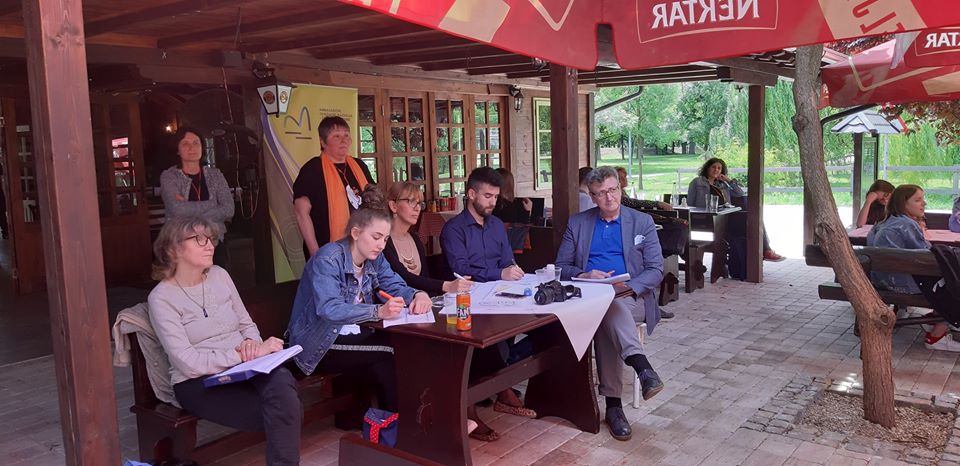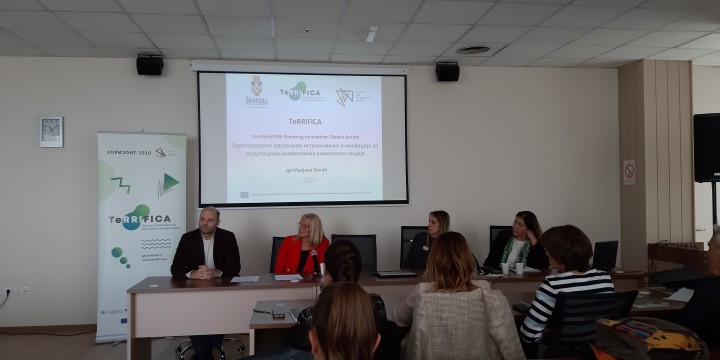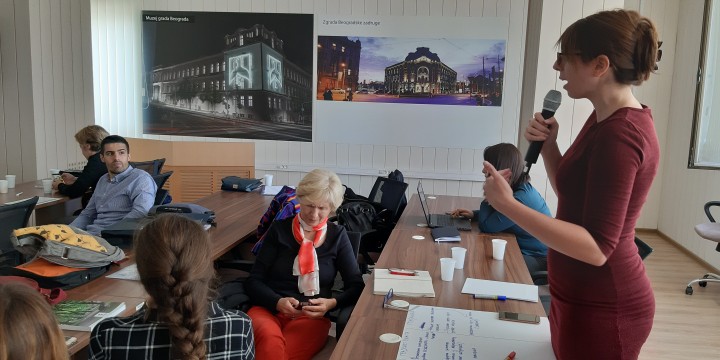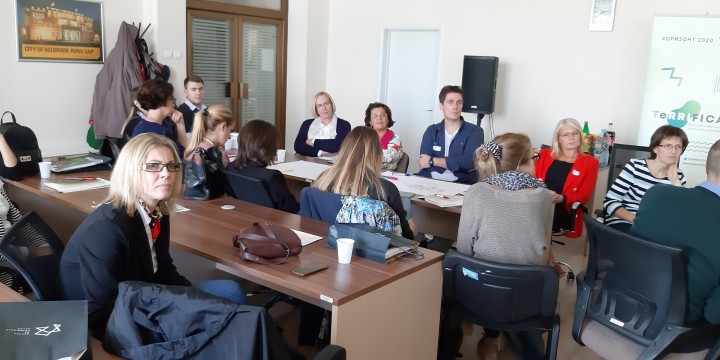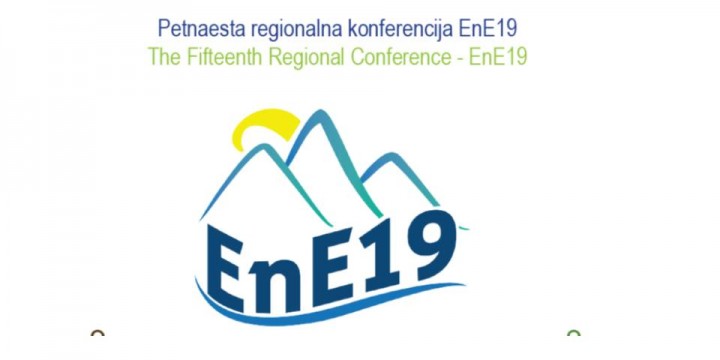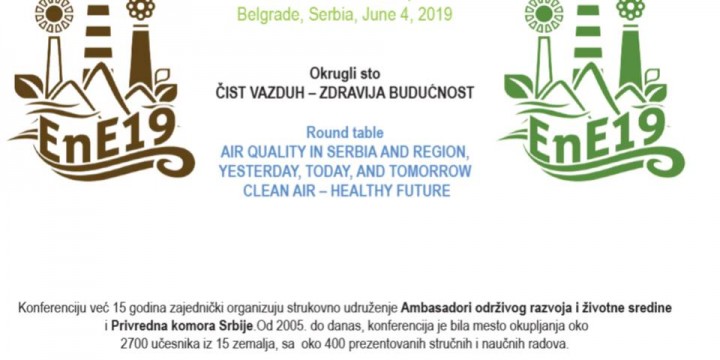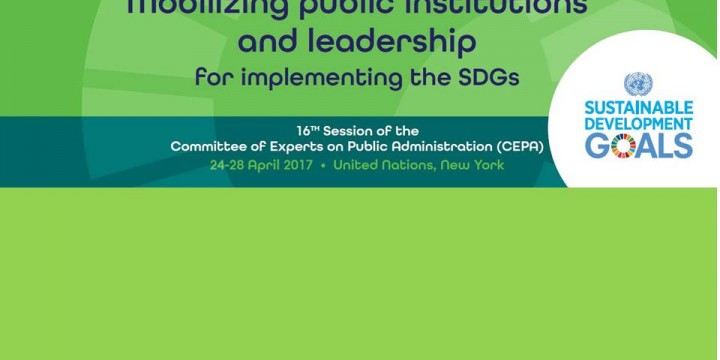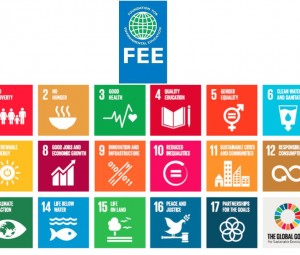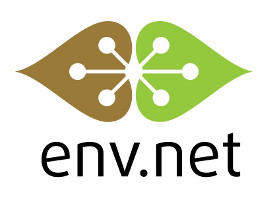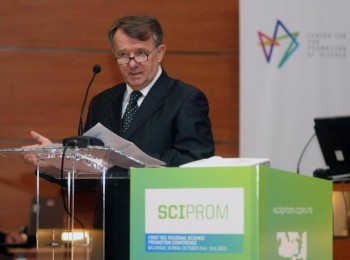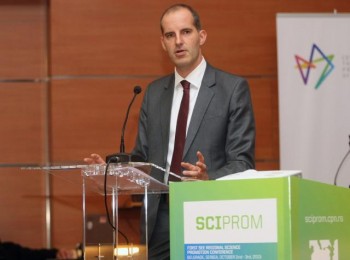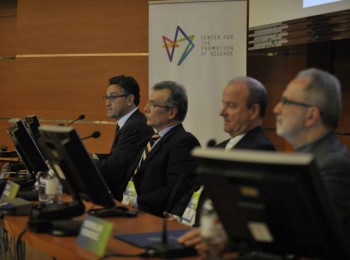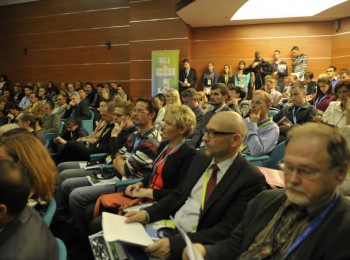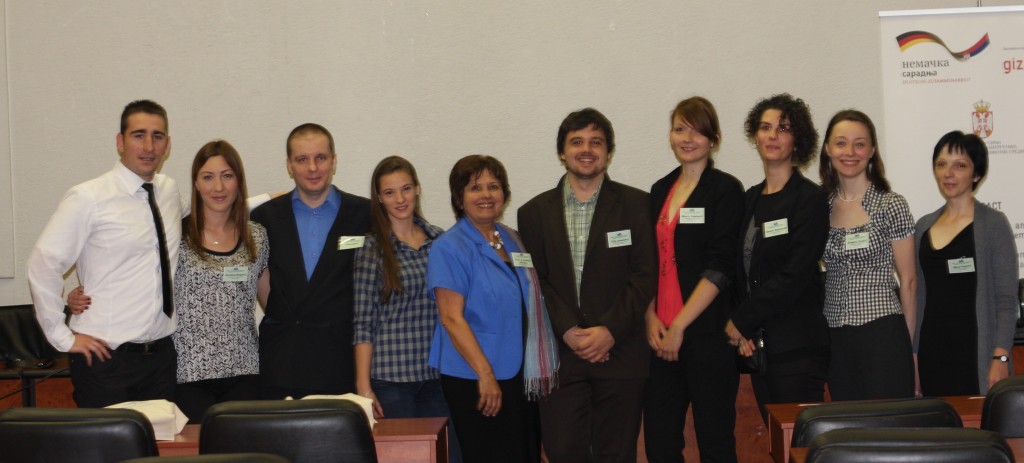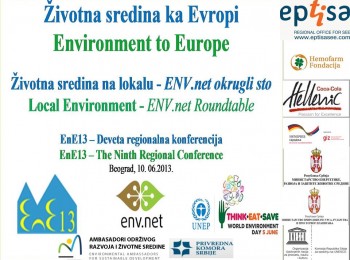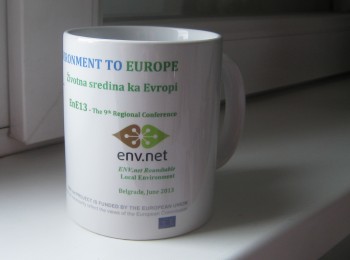Biodiversity protection and nature-based solutions in focus of EASD activities
Concept of nature-based solutions implies searching for existing, sustainable solutions from nature in order to provide benefits for both human well-being and biodiversity, by addressing societal challenges. There are different solutions mapped so far and implemented in different areas and environments, such as protection, restoration or management of natural and semi-natural ecosystems; the sustainable management of aquatic systems and working lands such as croplands or timberlands; or the creation of novel ecosystems in and around cities. All solutions are designed to be implemented by local communities and related institutions and organizations (towards implementation of United Nations Decade of Ecosystem Restoration 2021-2030)
EU Biodiversity Strategy to 2030, represents a comprehensive plan under the European Green Deal, which serves to improve state of the nature in European Union, by protecting biodiversity and reversing the degradation of ecosystems. In the focus of this Strategy is increasing the area under protection for at least 30% of both land and sea in Europe, restoring degraded ecosystems and securing 20 billion EUR/year for biodiversity through various sources, including EU funds, national and private funding.
The main challenge in the region of Western Balkan, area with outstanding biodiversity, natural resources and huge number of solutions created by nature, is to set up Green Agenda and Biodiversity for the Western Balkans as important as all other Development Agendas. In 2017, the Biodiversity Task Force of South East Europe was established to serve as a technical and advisory body of the Regional Working Group on Environment (RWG Env) of the Regional Cooperation Council. The most important objective for Western Balkans in Green Agenda implementation is to mainstream biodiversity elements in other policy areas in order to improve state of protected areas (through sustainable financing), increase number of protected areas and increased surface area under protection, as well as to improve the status of the endangered species. In addition, these actions will lead to protect, restore and manage natural and semi-natural ecosystems; to establish sustainable management of aquatic systems and working lands, but also will provide different solutions and possibilities for creation of novel ecosystems in and around cities. The strategic Green Agenda for WB document will identify priorities to focus on, while the implementation would require synchronized actions and involvement of the entire region, by strengthening regional cooperation and involvement of all relevant institutions and organizations, in order to promote and implement nature-based solutions.
Biodiversity and nature protection are among EASD priorities in last ten years, reflecting in conference proceedings[1][2] , contribution to Study on Achievements and Perspectives towards a Green Economy and Sustainable Growth in Serbia, or training providing on ecological footprint. One of the priorities of EASD focus is education on importance of biodiversity protection, which is implemented mainly through the Eco-schools Serbia network. In the period 2017-2020, under the project The Great Plant Hunt biodiversity topic is introduced in Eco-schools Serbia network and started with implementation of the nature-based solutions concept.
From February 2022, EASD started to implement within Eco-schools Serbia network an Erasmus+ project ForLife , with leading partner from Slovenia, and another partner from Italy. This project is directly connected to nature-based solution concept, by using positive examples from nature, regarding promotion of protection, restoration or management of natural and semi-natural ecosystems and in the same time creation of novel ecosystems in urban and sub-urban areas where Eco-schools belong to.
EASD more focused to activities against plastic pollution
Environmental Ambassadors for Sustainable Development (EASD) started in 2020 with more focused engagement and activities in the thematic issue of plastic pollution. We found important UNEP initiative to beat plastic pollution , as well as designing out plastic pollution .
EASD started with analysis, participation in global studies and relevant national/local surveys and initiatives related plastic in products and in waste.
EASD activities include activities in : Science and Research (for better Governance and regulation) – A circular economy for plastic, Education and learning against plastic pollution, Promotion of sustainable travel against plastic pollution, Promotion of clean beach against plastic pollution, as well as Processes towards global plastic treaty and EU accession, participation and monitoring.
Further, EASD is following development of an international legally binding agreement . See resolution at the resumed fifth session of the 2022 United Nations Environment Assembly (UNEA-5.2) in Nairobi to end plastic pollution and forge an international legally binding agreement by 2024. EASD special attention is to harmonize global process against plastic pollution with EU accession process at national and regional level. To note that Serbia is candidate country for EU membership and Cluster 4 was opened for negotiation in December 2021. See also EASD work in theme EU accession and enlargement. In this period, EC priority is European Green Deal with action on plastics to tackle plastic pollution and marine litter, and to accelerate the transition to a circular plastics economy . For Western Balkan, Action Plan for the Implementation of the Sofia Declaration on the Green Agenda for the Western Balkans 2021-2030 (GAWB) is approved.
IPEN global plastics monitoring project
The aim of the IPEN global plastics monitoring project is to raise awareness locally and globally about hazardous chemicals in recycled plastics used for consumer products. The project targeted recycled plastic pellets of high-density polyethylene (HDPE) sold from small-scale, local operations, since this is one of the most commonly used material for consumer products. These have been analyzed for UV stabilizers, Decabromodiphenyl ether (deca BDE) and PCBs.
Environmental Ambassadors for Sustainable Development participated in the project as IPEN participated organization. The recycling facility EASD used as project site is situated in north-west Serbia, and there are app. 75 employees. The facility was founded 15-16 years ago. 75% of products are for the export, to the Central European Countries (Poland, Czech Republic…). Other 25% is sold to the domestic plastic producers (placed around Serbia), which use these recycled plastic pellets to produce plastic products, but not for food storage.
There are several steps performed to produce recycled plastic pellet, from yield small pieces of plastic (flakes or fragments) to the pellet that is using in next steps of production cycle.
All secondary raw material is used in the recycling process (“zero waste” at the end of the process). They use plastic breakage and waste from its production to make plastic buckets for the construction sector, black colored.
The input plastic is coming from unformal secondary raw collectors, but the large number are also imported.
The samples of plastic pellets were used from the facility and sent to IPEN to be analyzed. The samples were analyzed at the University of Chemistry and Technology Prague in the Czech Republic. More at …..
The results are shown in the study: Widespread chemical contamination of recycled plastic pellets globally.
Presentations:
Widespread chemical contamination of recycled plastic pellets globally
Global plastic pellet samplings – Results and briefing
Press Release:
Further promotion of results:
April 28, 2022 – Participating at Local Round Table in Perlez, municipality Zrenjanin, presenting issues of toxic additives in plastics pellets and IPEN study, as well as capturing synergies between plastic pollution (and with decarbonization and climate change. About 10 people from this small town participated.
Activities of awareness raising in Serbia are posted on site in Serbian language.
Sustainability of wastewater treatment methods from (Eco) schools in Serbia
From October 2021, EASD is implementing the project “Sustainability of wastewater treatment from (Eco) schools in Serbia”, with the aim of developing awareness of rural residents about the needs, benefits and opportunities to provide sanitation and treatment of waste water in small communities . Through the organization of promotional and educational activities planned by the project, it is expected to raise the level of knowledge and action in the field of wastewater management and related sanitation. The realization of the planned project activities is expected to improve the cooperation between Eco-schools and decision makers in local communities, and knowledge will also be increased in the preparation of the Plan for water supply safety and sanitation.
The project will analyze the possibilities and requirements of sustainable sanitation and properties of wastewater from Eco-schools and other sources, map the problems that exist due to inadequate wastewater treatment in Eco-schools in rural communities and present the results of civic activism through Eco -schools in local communities, related to sustainable wastewater treatment.
* Project: “Sustainability of wastewater treatment from (Eco) schools in Serbia” is supported by the Ministry of Environmental Protection of the Republic of Serbia, through support for civil society projects in the field environmental protection in 2021.
More on activities in Serbian.
“Citizen science” – definition in 2021 UNECE Document
Environmental Ambassadors for Sustainable Development (Environmental Ambassadors, EASD) is a non-for-profit professional association focusing, among other, work on research and science (professional and participant science/citizen science) promotion. EASD is the member of European Citizen Science Association.
With interest we are following the seventh session of the Meeting of the Parties to the Convention on Access to Information, Public Participation in Decision-making and Access to Justice in Environmental Matters (Aarhus Convention) taking place in Palais des Nations, Geneva from 18 to 21 October 2021. A number of substantive decisions are expected to be adopted at the session that will guide the activities of the Convention in the next intersessional period.
Among documents is document ECE/MP.PP/2021/20/Add.1. There, a number of definitions took our attention; some of them are: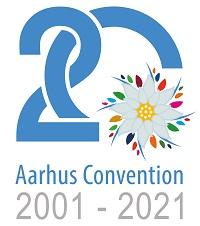
- “Citizen science”, means a form of open collaboration in which members of the public participate voluntarily in the scientific process, engineering research or environmental monitoring in various ways;
- “Citizen science observatories”, refers to community-based environmental monitoring and information systems that invite individuals to share observations, typically via mobile telephone or the web;
- “Research data”, means documents in a digital form, other than scientific publications, which are collected or produced in the course of scientific research activities and are used as evidence in the research process, or are commonly accepted in the research community as necessary to validate research findings and results;
- “Citizen science data”, means data collected by members of the public, often in collaboration with or under the direction of professional scientists, nongovernmental organizations and scientific institutions;
- “Citizen-generated data”, which means data produced through citizen sensing, citizen science and other forms of civic monitoring that share the common denominator that the data collection process is primarily carried out by volunteer individuals actively joining the initiative;
Virtually we are in Nairobi: participating at The Global Major Groups and Stakeholders Forum , the fifth meeting of the Open-Ended Meeting of the Committee of Permanent Representatives, Science-Policy Forum and the UN Environment Assembly (UNEA 5.1)
On February 9, 2021, EASD two representatives starts two weeks engagements and participation at: The Global Major Groups and Stakeholders Forum (February 9-11) , the fifth meeting of the Open-Ended Meeting of the Committee of Permanent Representatives (February 15-16), Science-Policy Forum (February 18-20) and the UN Environment Assembly (UNEA 5.1), February 22-23.
We are starting with the consultations considering the following themes: UNEP Mid-Term Strategy, UNEP Program and Stockholm + 50, as well as main messages from Major Groups and Stakeholders to UNEA. To note that Environmental Ambassadors for Sustainable Development is accredited to UNEP participated previously at Regional Consultation Meeting for Europe in preparation for UNEA 5 – RCM for UNEA 5.1, virtual meeting on December 16-17, 2020. Also, EASD was engaged with its preparatory process and exchange views with Major Groups towards UNEA5. This year, Serbian Minister of Environment is Vice President of UNEA.
UNEA 5.1. Messages and selected outcomes:
OUTCOMES OF THE ONLINE SESSION: UNEA-5
Major Groups and Stakeholders Joint Statement to UNEA-5
Statement by the Women’s Major Group
CPR Chair’s Speech on the Report of the OECPR to UNEA-5.1
UN Science-Policy-Business Forum on the Environment ;Event report
…..
Moments from EASD participation at UNEA 4 are available, as well as at Science and Technology Community Meetings and UNEP Network of the Women Ministers and Leaders.
WatSanPlan
WatSanPlan (Water and Sanitation Safety Planning in the Balkan Region: Albania, North Macedonia, Romania and Serbia ). In cooperation with WECF, EASD is promoting WSSP in Serbia, through extension and revision of the WSSP compendium, WSSP educational materials & concepts, improve qualification of teachers and students in a Serbian community, conduct media campaign to motivate citizens to measure nitrate levels in water on their own, conduct relevant analysis and publication of results. The actions include public actions by students and teachers on the selected UN World Days, presentation of the project at the Regional Forum on Sustainable Development of the UNECE (Economic Commission for Europe) in Geneva (Switzerland, March 2022), and in Berlin for BMU and other interested parties. All partners should get to know each other, tasks and responsibilities will be discussed in detail and assigned to individual persons. Milieukontakt Albania (MA) and Environmental Ambassadors for Sustainable Development (EASD) will be officially included in the Balkan WASH network.
Project is supported by funds from the Germen Federal Ministry for the Environment, Nature Conservation and Nuclear Safety (BMU). EASD signed contract with Women Engage for a Common Future – WECF e.V., Germany. The timeframe of the project is from 01 September 2020 to 31 August 2022.
____________________
EASD is at World Water Week ( Stockholm 2022)
UNEP@50 and World Environment Day
Joining the World menstrual hygiene day 2022; Reflection
BE CONNECTED WITH THE REGIONAL UNECE FORUM ON SUSTAINABLE DEVELOPMENT
Link for Survey : SVETSKI DAN TOALETA 2021. GODINE – Učestvujte u istraživanju koliko su održivi načini tretmana otpadnih voda iz (Eko)škola u Srbiji –
TRAINING FOR STUDENTS – ALEKSANDROVAC, OCTOBER 22, 2021
Training for trainers on water safety and sanitation
(Razvoj plana za bezbednost vodosnabdevanja i sanitacije u ruralnoj zajednici )
Information paper on Climate Change and Floods
Promotion by media (in Serbian, Da li smo spremni za sve češće poplave? )
Promotion in schools (in Serbian, Kako smanjiti i sprečiti širenje infektivnih bolesti u školama )
EASD contributed to the preparation of the UNEP “Researchathon”
EASD respond (with “Let’s influence Agenda 2030 for Serbia to have environmental pillar, ongoing since 2019”) to a public call for inputs to solicit good practices related to the promotion and implementation of the environmental rule of law. Through this “researchathon”, UNEP seeks to consult with a wide range of stakeholders in preparation for the UNEP 2021 Global Report on Environmental Rule of Law and to enhance the implementation and understanding of the environmental rule of law by promoting good practices and success stories.
EASD is UNEP accredited organisation.
November 2020.
ENV.net
ENV.net project consists of ENV.net 1/2 (2012-2016) and ENV.net 3 (2017-2020) projects. EC supported
ENV.net 1/2: ENV.net – Development of ENV.net in West Balkan and Turkey: giving citizens a voice to influence the environmental process reforms for closer EU integration, EuropeAid/132438/C/
ACT/Multi – 2012/306-642 and 2014/351-610; Partners for project implementation are: Puntosud , EASD , Co-PLAN , EEB – European Environmental Bureau, ATRC and TEMA . The project builds on the experience of an EU-funded project, namely the Environment Forum, implemented in the period 2009-2012, aiming at developing capacities of environmental NGOs to establish a constructive dialogue with national authorities. The present project strategy has been designed to achieve a greater commitment and capacity of a group of CSOs coming from Environment Forum experience and which have agreed on the creation of a new network, the ENV.net, to support the civil activism, give citizens a voice and influence the public reform processes in the approximation to the environment acquis. With the view to further enhance their capacities to work with CSOs and to share experience with other European countries, EEB has accepted to participate and to share its experience. Project objective – Greater commitment and capacity of the ENV.net to give citizens a voice and influence public sector reform processes in the environment sector through analysis, monitoring and advocacy. As one of the outcome National ENV.net networks (to complement Regional ENV.net network) were established; established ENV.net Network in Serbia have 54 organizations (multistakeholders).
ENV.net3: “ENV-net factoring the environmental portfolio for Western Balkans and Turkey in the EU Policy Agenda” – EuropeAid/154870/ACT/Multi ; EASD (Serbia) partners for project implementation are: 4X4X4 Balkan Bridges from North Macedonia, European Environmental Bureau from Belgium, Advocacy Training and Resource Center, from Kosovo*, Green Home, from Montenegro, Lir Evolution, from Bosnia and Herzegovina, TEMA – the Turkish Foundation for Combating Soil Erosion, for Reforestation and Protection of Natural Habitats, from Turkey and Foundation Punto,Sud, from Italy. The project contributes to the improvement of environmental policy-making and implementation in compliance with the EU standards. To this end, the network foresees to contribute to both improved and intensified inter-action among actors (including environmental CSOs, media and policy-makers) and an overall more enabling technical and financial environment where these actors operate. The action sets out to strengthen the profile of ENV.net as the leading network and bridging actor in environmental policy-influencing in the WB and Turkey region (vis-à-vis EU). Further, it foresees introducing and initiating a discussion on the Circular Economy concept in the region, as well as intensifying climate change actions. The action also foresees a number of value-adding, cross-cutting elements such as inter-partner learning/exchange, networking, and thematic organisational support to third parties (i.e. local grass-root organisations, media).
____________________________________
Paper published: Andjelka Mihajlov, Aleksandra Mladenovic & Filip Jovanovic, Contribution to Environmental Communication: comparative analysis of two qualitative methods as the performance to European Union accession, in “Adapt to Survive. The role of social media, sharing and communication to ameliorate this world “, Conference Proceedings Book Edited by Margarita Kefalaki, Communication Institute of Greece (COMinG),Athens, p.57-66 , 2021 ( ISSN: ISBN: 978-618-85622-3-3 ), Available at https://coming.gr/wp-content/uploads/2021/12/1_1_2021_Adapt-to-survive_Book_conf-proceedings_COMinG.pdf
Selected activities:
March 2021:
Information paper on Climate Change and Energy
Information paper on Climate Change and Floods
August 2021: Environmental Communication: Media Archive Reports as a Participant Science Tool
Promotion by media (Da li smo spremni za sve češće poplave?)
December 31, 2020: ENV.net3 project final steps – infographics with documents developed by EASD
____________________________________
Report on monitoring the progress of national environmental legislation (Chapter 27) in 2018, 2019, and half-year 2020, with projections through end-2020 / Izveštaj o monitoringu napredovanja nacionalnog zakonodavstva o životnoj sredini (Poglavlje 27) u 2018., 2019. i prvoj polovini 2020. godine, sa projekcijom do kraja 2020.godine (Extended abstract in English, Full text in Serbian)
Position Paper on COVID 19 and waste management
Circular Economy goes beyond Waste Management presented at EurAsia Waste Management Symposium 2020
Information paper on meaning of Cluster “Green agenda and sustainable connectivity” for Serbia
Reflection paper on air quality data for Serbia
2020 Spotlight Report on Circular Economy in Serbia
EASD publication on circular economy acknowledged by European Circular Economy Stakeholder Platform
Virtual tour on the experience from Italian practices in circular economy
November 2020: Joint civil society statement for Sofia Summit
EASD research presented at EurAsia Waste Management Symposium
October 2020, New Momentum for the Environmental Agenda in the Western Balkans and Turkey?
Establishment of the South East European Platform to Beat Pollution – SEEPP
Recap the moments from EnE19/ENV.net Conference
March 2019: UN Environment : 4th Assembly (and pre- and side-events) , ENV.net related event
November 2018: To report: The first Regional Conference on Circular Economy was success ; The first regional conference on circular economy, Belgrade, November 2018: Agenda
Call for sub-grants (6.novembar 2018: Otvoren poziv za dodelu sub-grantova u okviru ENV.net projekta)
YRE competition: apply before February 1, 2019.; Theme: Energy Efficiency
ENV.net Initiative: to update National Strategy on Sustainable Use of Natural Resources and Goods, by applying Circular Economy concept ; ENV.net Initiative and Knowledge based advocacy: to update National Strategy of Sustainable Use of Natural Resources
Circular economy knowledge based advocacy in Eco-schools network in Serbia
May 2018. Guest lectures made at two Universities in Serbia: “Circular economy is concept and process, and still not full circle” ; Participation at the Green Parliamentary Group meeting
Follow project at : facebook.com/envnetsite/ and www.env-net.org
February 2018 – ENV.net 3 Kick-off Meeting in Tirana
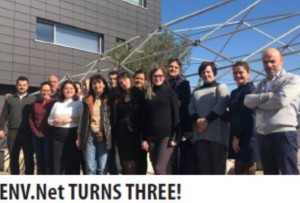 ________________________________________________
________________________________________________
In December 2017. we started with ENV.net 3 : ENV-net factoring the environmental portfolio for Western Balkans and Turkey in the EU Policy Agenda (reference number 2017/394-372)
ENV.net 3 – Serbia team include: Aleksandra Mladenovic –National Coordinator and Manager. In addition, Thematic experts/consultants, on demand, are Prof dr Andjelka Mihajlov and Filip Jovanovic, and Media communication expert, on demend, is Milica Momcilovic.
________________________________________________________________________________
Development of ENV.net in West Balkan and Turkey: giving citizens a voice to influence the environmental process reforms for closer EU integration – EuropeAid/132438/C/ACT/Multi – 2012/306-642 and 2014/351-610 (2012-2016)
The project builds on the experience of an EU-funded project, namely the Environment Forum , implemented in the period 2009-2012, aiming at developing capacities of environmental NGOs to establish a constructive dialogue with national authorities. The present project strategy has been designed to achieve a greater commitment and capacity of a group of CSOs coming from Environment Forum experience and which have agreed on the creation of a new network, the ENV.net, to support the civil activism, give citizens a voice and influence the public reform processes in the approximation to the environment acquis. With the view to further enhance their capacities to work with CSOs and to share experience with other European countries, EEB has accepted to participate and to share its experience. Project objective – Greater commitment and capacity of the ENV.net to give citizens a voice and influence public sector reform processes in the environment sector through analysis, monitoring and advocacy.
Partners for project implementation are: Puntosud , EASD , Co-PLAN , EEB – European Environmental Bureau , ATRC and TEMA . EASD Activity circles represent the scope of our activities.
Project launched site for presentation of activities in all participating countries, as well as facebook page and ENV.net Newsletters.
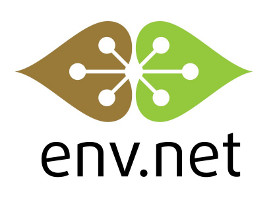 ENV.net 1/2– Serbia team include: Dr Nataša Žugić Drakulić –National Coordinator and Filip Jovanović – project manager , chosen in transparent process by „ Environmental Ambassadors for Sustainable Development“, partner organisation in this project. In addition, National consultant for European integration is Prof dr Andjelka Mihajlov , dr Hristina Stevanović Čarapina is leading expert .
ENV.net 1/2– Serbia team include: Dr Nataša Žugić Drakulić –National Coordinator and Filip Jovanović – project manager , chosen in transparent process by „ Environmental Ambassadors for Sustainable Development“, partner organisation in this project. In addition, National consultant for European integration is Prof dr Andjelka Mihajlov , dr Hristina Stevanović Čarapina is leading expert .
__________________________________
ENV.net Serbia network is functioning : Some of activities could be followed only in Serbian, like calls to participate, and other actions targeted to citizens in Serbia.
**************************************
Highlights: ENV.net publications
- A Guideline of EU Accession Monitoring Tools for CSOs in candidate and potential candidate countries: Chapter 27, (Authors and contributors: Andjelka Mihajlov, Natasa Zugic-Drakulic, Filip Jovanovic, Federico Bastia, Simona Pogliani, Mara Silina, Teida Shehi and Dusko Hristov), Published by Environmental Ambassadors for Sustainable Development with the financial assistance of the EU – ENV.net project document, Belgrade January 2015
- How to influence environmental policy through effective advocacy (Authors: Margherita Tolotto and Mara Silina), ENV.net Advocacy Toolkit, European Environmental Bureau, Brussels, January 2015
- Climate change and challenges of the enlargement (Authors: Anja Kolmuss, Dragana Mileusnic, Zanna Vanrenterghem and Richard Filcak), ENV.net Advocacy Toolkit, European Environmental Bureau, Brussels,September 2016
June 2016: Agenda, WED Messages from Serbia: 12th Regional Conference “Environment to Europe” , REPORT FROM EnE16-ENV.net, BELGRADE, SERBIA
April 2016 – ENV.net Course: CSO Participation in Accession Process , Chapter 27: CSOs participation
March 2016 – New internet portal: Greenweb
January 2016 – Save the date for EnE16-ENV.net Conference ; We participate: Regional Conference: „Sustainability of the FPAs” , Brussels . Water-food-energy-ecosystems nexus assessment in the Sava River Basin – Lessons learned and further steps
October – December 2015 – Ministry support to ENV.net , Event
October – Partnership for Climate Change issue : Serbia’s climate talks – on the way to Paris
June 11 – European Commission Vice-President Mr Maroš Šefčovič had meeting with CSOs in Belgrade. EASD participate!
June 7 – Bicycling-ENV.net promotion in town Gornji Milanovac , Green day in Gornji Milanovac
June 5 – Regional Conference ”Environment to Europe” EnE15 – ENV.net EU Environmental Horizontal Legislation: Methods, Standards and Tools , Invitation , AGENDA , Proc. of papers
May 26, 2015 – Promotional activity
April 21, 2015 – Participation in Public Hearing on Climate Change related challenges in Republic of Serbia
April – THE ELEVENTH REGIONAL CONFERENCE ENVIRONMENT TO EUROPE – ENE15 – ENV.NET acknowledged as the European Sustainable Development Week event
March 22 – Celebrating the World Water Day in Serbia: field visit to Ada Ciganlija
February 2, 2015: Invitation for EnE15-ENV.net Conference launched
January 29, 2015: A Guideline of EU Accession Monitoring Tools for CSOs in candidate and potential candidate countries (ENV.net region): Chapter 27 , document finalized
January , 2015: Promotion of Publication
December 31: Thematic Publication “Environment to Europe”, 2014 ( Tematski zbornik radova “Životna sredina ka Evropi”)
December 12: ENV.net Serbia Seminar: Environmental Education in Schools
November 24-25, ENV.net on the margins of ECF Annual Meeting in Brussels with European Commision
November 4-5 , Regional training on the process of designation of potential Natura 2000 sites
October 30 – Conference “EU accession in the field of environmental protection and the role of local authorities”
October 28 – Ministry of Agriculture and Environmental Protection is co-funded ENV.net project , contract signed
October 22-23, Belgrade: ENV.net training: “EU project design process and Implementation of environmental policy”, Invitation , Agenda , Training
October 2014 – ENV.net brochure published and presented
October 14 – ENV.net related: Participation on Conference “Eco-standards and Education”
October 8 – “Little progress has been made in the areas of environment and climate change”
September 29 – ENV.net Round-table Dialogue for Green Future (ENV.net okrugli sto sa niškim srednjoškolcima “Dijalogom ka zelenijoj budućnosti“) (sub-grant)
September 23-25, Brussels: ENV.net preparatory partnership meeting and Framework Partnership Agreement (FPA) Closing Event for Phase I
September 19-24 , We are following Explanatory Screening for the Chapter 27
August 29 – ENV.net (sub-granting) publication published PUBLICATION : “Species of plants and animals of special conservation concern in EU” , in Serbian
July 27 – Partnership with media – Radio Beograd 2
June 19 – Eco-package initiative as the example environmental education for the future EU citizens
June 5 – CONFERENCE , ENV.net multi-stakeholder Conference on Chapter 27: about 200 participants
June 4 – Meeting with media , Moments from the Conference for Media
May 29, 2014 – ENV.net Serbia Conference organisation on the good track –Agenda for EnE14/ENV.net Conference “Environment to Europe”, June 5, 2014 in SCC – opening at 10:00
May 22-24, 2014 – 4th Partners Meeting in Milan
May 13, 2014 – European Solar Days – participation in promotion of EU environmental values
May 10, 2014 – ENV.net Let us clean up Europe! event: Ada Ciganlija Beograd ; ENV.net Serbia with children, parents and teachers “cleaning up Serbia” , Event in pictures
May 22-24, 2014 – 4th ENV.net Partners Meeting in Milan
May 7-8, 2014 – Some of ENV.net Partners meet in the corridors of ECRAN ECF Meeting
April 25, 2014 – UNEP acknowledged EnE14-ENV.net 2014 Conference as the World Environmental Day Event
April 5, 2014 – Education for future citizens of EU: guest lecturing at the Law Faculty
April 4, 2014 – EU Delegation to Serbia: Consultative Meeting with CSOs on progress towards EU in 2014
Aprl 4, 2014 – We participated to the meeting related to EU-Serbia Civil Society Joint Consultative Committee – JCC
April 2, 2014 – ECRAN NGOs Environment and Climate Change Forum – Evaluation Outcome – Congratulation to ENV.net partners!!!!
April 1, 2014 – Protego and Protecta sign subcontracting contracts
Marc 20-9, 2014 – EASD written contribution to the 2014 Progress Report
March 25, 2014 – Participation on UNECE consultation related to the 3rd EPR for Serbia
March 23, 2014 – ENV.net sub-grants winners announced , ENV.net
March 20, 2014 – We participate on Panel at Faculty of Organisation Sciences – University of Belgrade : Knowledge about Environment
March 9, 2014 – Technical (formal requests) evaluation of sub-grants application finished: 45 projects eligible for further evaluation
March 6, 2014 – Promotion of global activity EARTH HOUR (Marh 29, 20:30-21:30) and call for participation
March 4-6, 2014 – We participate in Zagreb on Workshop on Water-Food-Energy-Ecosystems Nexus Assessment in the Sava River Basin
From February 2014 – EU negotiation process: we are following explanatory screenings
February 26, 2014 – In accordance with procedure, QUESTIONS by potential applicants with our ANSWERS are posted on web site on February 26, at 07:00 , taking in account questions received by February 25 at 23:59
February 20-21, 2014 – EASD-ENV.net Serbia participated in defining the first strategic framework for CSOs development
February 18,2014- Knowledge based advocacy: Environment should be within priorities in the negotiations with EU
February 13, 2014 – Environment in youth policy in Serbia
February 12, 2014 – Meeting with ENVAP2 Project representatives
February 7, 2014 – Participation on Training related the Sector Planning Documents – SPDs
February 1, 2014 – Call of proposals for ENV.net sub-granting in Serbia “EU: we watch and learn to be ready!”
January 30, 2014 – Participation on public hearing by the European Economic and Social Committee (EESC) Study Group
January 30,2014 – Thematic meeting of the SECO mechanism on IPA II programming
January 30, 2014 – Participate in the Mapping of CSOs and other stakeholders in in the process of EU accession negotiations
January 19, 2014 – EASD / ENV.net Team reading of European Parliament Resolution, January 2014
January 07, 2014 – Starting preparation for ENV.net 2014 Round-table / Conference
January 2, 2014 – Attention to ENVIRONMENT in EUROPA DAIRY
_______________________________________________________________
December 23, 2013 – Workshop on environmental values for kindergarten children from Sombor (Minutes) , Participation on meetings in Nature Protection Institute and Agency for Environmental Protection
Decembar 20, 2013 – In media : Promotion of knowledge based information
December 20, 2013 – Environmental Education for future EU citizens , Minutes
December 17, 2013 – ENV.net region news: European Affairs ministers give green light to Serbia’s EU negotiations
December 16, 2013: Workshop for strategic planning of further work SECO mechanism
December 3, 2013 – ENV.net presented to the master students of Faculty of Security Studies
December 2, 2013 – Eye on EU integration process: Parliament of Serbia , Eye on SEE regional cooperation
November 28, 2013 – Meeting FPA project grantees with DG Enlargement representative
November 25, 2013 – Partnership with Media : Partnership agreement with Journalist’ Association of Serbia
Environmental Education of future EU citizens: Activity on November 19,2013
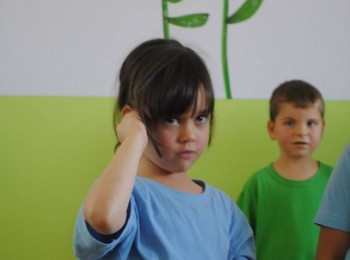 |
Acknowledging the outreach of ENV.net Survey and ENV.net 2013 Roudtable recomendations, EASD – ENV.net Serbia recognized importance of children/youth education for active EU citizenship , through promotion of EU environmental values. We would like to share moments from kindergarten “Pčelice”, from village Šetonje, as promotion event for environmental values in education. With children and teachers, as well as EASD Team, there were Prof dr Ivica Radovic and mr Ljubiša Antonijević, assistant ministers for education and science. |
Partnership with municipality – On November 18., 2013, ENV.net project presented on the Round table in Municipality Vračar (within City of Belgrade).
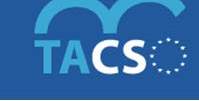 Cooperation with TACSO Serbia – On November 15. 2013, in Belgrade, TACSO Advisory Committee (LAG) organized a consultative meeting with representatives of civil society organizations and networks and Serbian civil society expert community. At the meeting a draft of a document on the assessment needs of civil society in Serbia was discussed.
Cooperation with TACSO Serbia – On November 15. 2013, in Belgrade, TACSO Advisory Committee (LAG) organized a consultative meeting with representatives of civil society organizations and networks and Serbian civil society expert community. At the meeting a draft of a document on the assessment needs of civil society in Serbia was discussed.
 EASD prepared Opinion and contribution to the Draft Strategy Paper for the Republic of Serbia 2014-2020. Through SECO mechanism opinion is sent to Governmental Office for European Integration. Opinion is based on Serbia 2013 Progress Report and Strategy – Reading by ENV.net Serbia Team .
EASD prepared Opinion and contribution to the Draft Strategy Paper for the Republic of Serbia 2014-2020. Through SECO mechanism opinion is sent to Governmental Office for European Integration. Opinion is based on Serbia 2013 Progress Report and Strategy – Reading by ENV.net Serbia Team .
Organisation capacity building process: EASD acknowledged becoming IPEN network Participating Organization
Eye on environmental laws changes: monitoring compliance with EU directives
November 2013. – The third ENV.net partnership meeting in Milan
28. October – Meeting with European Parliamentarians
ENV.net Serbia Team prepared document: Reading of 2013 Progress Report for Serbia and Strategy by ENV.net Serbia Team ( Serbia 2013 Progress Report and Strategy – Reading by ENV.net Serbia Team ).
____________________________________________________
22. and 23 October – Education on sustainable management of lead/chemicals
October 18 – EC Delegation in Serbia, present to relevant CSOs, on October 18, 2013 , Serbia Progress Report 2013, in which the Commission services present their assessment of what Serbia as the candidate country has achieved over the last year.
October 2013 : Participated on different events organized to raise awareness to EU approximation environmental challenges.
Promotion of ENV.net facebook page!
October 2, 2013 – ENV.net team participated at the First SEE Regional Science Promotion Conference (SCIPROM), opened in Belgrade, with the aim to bring together science promotion professionals, practitioners and enthusiasts to share experience and network in order to strengthen the link between science and society in our Region. In the current competitive global environment it is an imperative to enhance economic and social capacities by improving the educational structure of society, inspiring innovation and technological advancement and creating a milieu for appreciation of the value and benefits of knowledge. In the opening address, Minister for Education, Science and Technology development of Serbia underlined, among others the importance of knowledge based actions, as well as the importance of drinking water for development. Conference bring international experts and representatives of international organizations, research and educational institutions, science camps, science communicators, NGOs, private sector and media on board.
This conference justify the path of ENV.net Serbia implementation and development, linking European Integration, Knowledge based activities and sectors : Education, Science and Environment/Natural Resources.
____________________________
Waste management and water management are considered as two important segments of environmental acquis and studies in this area represent an important aspect of ENV.net project. Environmental accession status of Serbia ( waste , water and EIA thematic issues) was presented by EASD team at International Conferences in Vienna (Austria) and Zadar (Croatia), as well as on chemicals at SAICM Regional Meeting (Skopje, Macedonia FYR).
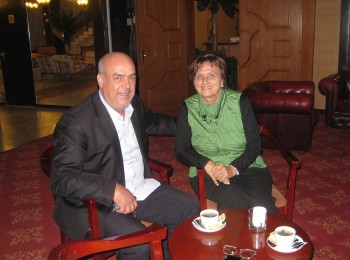 In addition, possible ENV.net partnerships are discussed with other participants and interested CSOs.
In addition, possible ENV.net partnerships are discussed with other participants and interested CSOs.
In Skopje, EASD representative met Macedonian 4x4x4 BB representative on September 26, 2013, to discuss possible enlargement of ENV.net project to Macedonia.
________________________________________
Promotion of ENV.net site in place Join us!
Added value for ENV.net Serbia is EASD activities within the development of Post-Rio+20 Agenda.
Office for Cooperation with Civil Society organized on September 6, 2013 Conference devoted to negotiating Chapter 27 (Environment). Presentation (in Serbian) from the Conference includes: Poglavlje 27 pregovori, Iskustvo R Slovenije, Natura 2000 Ministarstvo, Uloga civilnog drustva u monitoringu, Natura 2000 NGO )
September 2013: ENV.net project presented in the Ministry of Education, Science and Development of Serbia (Meeting of the National Committee for Environmental Education Programs)
August 2013. – Snapshot analysis : While waiting for EC 2013 Progress Report
___________________________________________________________________
Feminist response to Covid19
EASD is organization working across global movements centered on human rights, sustainable development, and
economic and social justice; partner feminist organisations come together in a moment of collective organizing to outline key principles for a just and resilient recovery from the ongoing global pandemic, as well as to track responses and uplift collective action of feminists around the world.
The COVID19 pandemic is upending economies, changing mobility patterns, disrupting social networks, altering informal and formal workplaces and flows, and redefining the concept of essential work and who performs it. EASD already address the issues at EnE20 Conference, and by E-campaign.
KEY PRINCIPLES FOR FEMINIST RESPONSE TO COVID19 are cross-cutting to all these principles is the promotion, protection and fulfillment of human rights and gender equality:
- COVID19 responses must centre the well-being of all people in an intersection manner
- COVID19 responses must ensure the health and safety of all, including ensuring sexual and reproductive health and rights
- COVID19 responses must promote a comprehensive paradigm shift, relying on adequate and equitable financing
- COVID19 responses must be based on and strengthen democratic values
- COVID19 responses must promote a just and equitable transition for people and planet
- COVID19 responses must be guided by cooperation, multilateralism and global justice
June 5,2020 – EnE20 Conference “Citizen science: Focus on Agenda 2030 and Sustainable Development Goals”
Professional association “Environmental Ambassadors for Sustainable Development ” and Serbian Chamber of Commerce , on June 5th 2020, organize the 16th Environment to Europe – EnE20 Conference. Traditionally, it is an official event that marks the UN World Environment Day (WED) in the Republic of Serbia and region.
In accordance with the current circumstances around Covid19, the EnE20 conference “Citizen Science: focus on Agenda 2030 and Sustainable Development Goals” is realized online, presenting the results so far achieved in the development of citizen science concept in Serbia. Bearing in mind that the concept of “citizen science” in Serbia is still developing, but supported through various joint actions and initiatives of scientists and formal / informal civic activists and organizations, the focus is to youth participation, especially through educational institutions involved in international Eco-schools program in Serbia.
This year, the co-organizers of EnE20 are the UN in Serbia , the Global Listening Center , the Center for the Promotion of Science , NALED , the French Institute in Serbia and PE Ada Ciganlija .
Plenary lectures of experts from the Serbian Chamber of Commerce, the Global Listening Center, the Center for the Promotion of Science, NALED and the Environmental Ambassadors for Sustainable Development, can be found at the link HERE. Invited speakers include dr Tanja Adnadjević, dr Marjana Brkić, mr Dušan Stokić, Slobodan Krstović, Sanja Knežević Mitrović, Đurdjija Petrović, and Prof dr Andjelka Mihajlov.
As part of the celebration of World Environment Day and as a special part of the EnE20 conference, a national debate is held for 20 students aged 11 to 18, who were nominated in the essay part of the competition organized by the international organization The Trust for Sustainable Living . The aim of the debate is to find solutions for a sustainable future by referring to SDG 17, My vision: Partnerships for a sustainable future. The emphasis of the speakers will be on the issues related to the environment, climate change and sustainable use of resources. By listening the young people and their visions, we can harmonize further economic and social development with the possibilities and potentials of the environment and nature.
The debate is taking place on Ada Ciganlija, a beach that has been awarded for 9 years by Blue Flag certificate, including the 2020 season, as a symbol of commitment to environmental protection and care for the health and safety of visitors during the summer bathing season. By meeting the criteria for obtaining the Blue Flag for Ada Ciganlija beach, the local community and the managers of the beach contribute to efforts to combat against climate change and raise citizen awareness on sustainable use of resources and the need to protect the environment.
Agenda and presentations, as well as detailed agenda of National Youth Debate
Minutes from Debate:
EU info center on debate and conference
Radio Television Serbia Portal about the Conference
The EnE20 conference is part of a campaign related to climate change, within the project: “ENV.net factoring the environmental portfolio for WB and Turkey in the EU Policy Agenda” (reference number 2017/394-372)
All information regarding the EnE20 conference can be obtained via Email: eneconference@feeserbia.com.
Citizen science concept in terms of adaptation and mitigation to the climate change
“Citizen Science refers to the general public engagement in scientific research activities when citizens actively contribute to science either with their intellectual effort or surrounding knowledge or with their tools and resources” .
In last decade, direction in science development moved from traditional circle of research to the new ways, by involving the public and becoming more and more inclusive in a growing range of disciplines. Historically this is not new that universities/academic researchers need to start involving public, citizens, civil society organizations… in their own activities (like Benjamin Franklin or Charles Darwin in the topics of topics that include applied life sciences and health research. It is evident that Citizen Science grows, reflecting in creation of large data sets (especially in monitoring and observing. The main challenge and very applicative approach is to involve citizen scientist in research of the topic that is very important for every unique life and that tackle every single citizen – CLIMATE CHANGE.
It is a question how citizens can be involved. Let we see some facts regarding ongoing climate change issue globally and in Serbia. The fact known wider is that from 1850 until know, temperature raised for 1 degree. The problem is that in relatively short period of time, temperature rises continually. Regarding Serbia, developing country, some of the consequences are following:
At the yearly level, every citizen from Serbia emits 4-5 t of carbon dioxide, what is a quantity at least 10 times bigger than quantity of communal waste per citizen per year. Precipitation is at the same level, more or less, but the problem that we are faced on is that redistribution is uneven. Dried periods are increased, for the period of 83 years, there were 13 dried periods, while in last 47 years, and same number of dried periods are evidenced. Furthermore, number of precipitation days of 20, 30 i 40 mm/per day also increase, especially important is that almost 5 times increased precipitation values of 40 mm/per day, for the period 2001-2017 compared to the period 1951-1980. The problem that urban places faced with relates to the sewage system, it is not constructed to accept raised amounts of atmospheric waters. Climate change goes beyond, without comeback to the previous, „climatelly“ better time!
Globally, to combat climate change, it is very important to follow Paris agreement conclusions and obligations. It should be taken into account that damages caused climate changes costs: at the EU level, from the period 2010-2016, 12,6 billions of eur (or from the period 1980-2016, costs are 436 billions of eur)
Possible practical solution is to include adaptation into future plans, construction, and agriculture through calculation of climate change parameters in order to avoid consequences of extreme climate events. That means to construct savage system to be able to accept extreme amounts of different precipitations, even it is not necessary in this moment.
What is solution and form of citizens’ engagement?
There is a recent project “Territorial RRI Fostering Innovative Climate Action (Responsible Research and Innovation)” with eight partners from Europe, among them Serbia and Center for the promotion of science, under Horizon 2020. One of the pilot region will be Belgrade. This project envisages active participation of citizen, civil society organizations, scientific and research institutions in applying adaptation measures at basic level of the society. The interactive map will be produced, where citizens will be able to mark places and points in the City of Belgrade, where they are fill uncomfortable during the year, in terms of climate parameters. This will help in future planning to pay more attention of local community what adaptation and mitigation measures to apply to these areas.
Environmental Ambassadors for Sustainable Development, as member of ECSA network, will use citizen science approach to contribute to better understanding what are possibilities of citizen engagement exist through Eco-school network in different parts of Serbia.
Round table AIR QUALITY IN SERBIA AND REGION, YESTERDAY, TODAY, AND TOMORROW – CLEAN AIR – HEALTHY FUTURE: draft agenda available
Program /Agenda
Nacrt AGENDE – Finalna agenda će imati dopune
Draft Agenda as on May 22, 2019 –Final agenda will be adopted to the June 4th status
4. jun June 4th
Sala PKS, Resavska 13-15 Beograd Serbian Chamber of Commerce Conference room,
Resavska 13-15, Belgrade
9:30 – 10:00 Registracija učesnika / Registration
10:00 – 10:40 Uvodna obraćanja /
Opening remarks
Predsedavajući/Chair persons: mr Dušan Stokić – PKS, dr Uroš Rakić, mr Aleksandra Mladenović – Ambasadori održivog razvoja i životne sredine
Goran Trivan , Minister, Ministry of Environmental Protection of Republic of Serbia / ministar zaštite životne sredine Republike Srbije
□ Stanojla Mandić, Deputy Commissioner for Information of Public Importance and Personal Data Protection of the Republic of Serbia / zamenik Poverenika za informacije od javnog značaja i zaštitu podataka o ličnosti Republike Srbije
□ Mihailo Vesović, advisor of president, Chamber of Commerce and Industry of Serbia , Co-organizer of the EnE19 Conference/ Privredna komora Srbije, koorganizator Konferencije
□ Environmental Ambassadors for Sustainable Development representative, Co-organizer of the EnE19 Conference/Predstavnik Ambasadora održivog razvoja I životne sredine, koorganizator Konferencije
Note: Competent authorities and international community in Serbia were invited to address the event with opening remarks – the list will be updated when receive official confirmation
Napomena: Nadležni organi i diplomate/međunarodne organizacije u Srbiji su pozvani da pozdrave konferenciju – ova lista će biti dopunjena kada organizatori budu dobili zvanične potvrde o prihvatanju poziva
Grupno slikanje / Group photo
Okrugli sto/Round table
Moderator dr Uroš Rakić
Introductory presentations, by invitation – Uvodna obraćanja, po pozivu
(sugerisano trajanje 10 minuta)
Discussion – Diskusija
10:45 -12:30
Filip Radović, direktor Agencije za zaštitu životne sredine, Ministarstvo zaštite životne sredine,
Republika Srbija, naslov će biti poznat do konferencije:
Dragan Ðurica, Pomoćnik pokrajinskog sekretara za urbanizam i zaštitu životne sredine – Sektor za monitoring i informacioni sistem životne sredine: Kvalitet vaduha – dela pre reči
dr Elizabet Paunović , bivsa šefica Evropskog centra za životnu sredinu i zdravlje Svetske zdravstvene organizacije (SZO) / former head of WHO European Centre for Environment and Health. Nacionalna implementacija Agende 2030 kao odlicna prilika za smanjivanje negativnog uticaja zagadjenog vazduha na ljudsko zdravlje
dr sci Uroš Rakić, Institut za javno zdravlje Srbije “dr Milan Jovanović Batut” : Aerozagađenje kao faktor rizika po zdravlje
Andrej Šoštarić, Gradski zavod za javno zdravlje Beograd: Monitoring kvaliteta vazduha u Beogradu
Prof dr Svetlana Stanišić, Univerzitet Singidunum: Veza između kvaliteta vazduha u Beogradu i smrtnosti
Marko Kazimirović, Univerzitet u Beogradu, Šumarski fakultet: Uticaj rasta šuma na kvalitet vazduha
Discussion interventions by invitation -Diskusione intervencije po pozivu –
(sugerisano trajanje 5 minuta)
Discussion – Diskusija
12:30-13:00 Milenko Jovanović, Načelnik Odeljenja za kontrolu kvaliteta vazduha, Agencija za zaštitu životne sredine, Ministarstvo zaštite životne sredine, Republika Srbija: Analiza stanja kvaliteta vazduha u Srbiji u 2018. godini
Vladimir Savić, Pomoćnik direktora za kvalitet , Zavod za javno zdravlјe Kralјevo:
Lokalni monitoring kvaliteta vazduha na teitoriji grada Kraljeva
Dunja Đenić , član gradskog veća zadužen za zaštitu životne sredine i energetsku efikasnost grada Uzica gradska uprava: Aerozagađenje u Užicu
Zoran Živkovic, zamenik gradonačelnika Valjeva: Aerozagađenje u Valjevu
Ivana Krstić, Sekretar Sekretarijata za zaštitu životne sredine Grada Niša : Aerozagađenje u Nišu
Mirjana Mitrović, Agencija za zaštitu životne sredine, Ministarstvo zaštite životne sredine, Republika Srbija: Polen u Srbiji
13:00-13:10 #BeatAirPollution: SOS za insekte/oprašivače, Eko-škola “Drinka Pavlović”, Beograd
#BeatAirPollution: SOS for insects/pollinators, Eco-schools “Drinka Pavlovic”, Belgrade
13:10 -14:00
Discussion interventions by invitation, continuation -Diskusione intervencije po pozivu , nastavak–
(sugerisano trajanje 5 minuta)
Discussion-Diskusija
Aleksandra Mladenović, predsednik, AOR, Refleksija na odluke i dogadjaje u okviru UNEA4, koje su usmerene na zastitu vazduha od zagadjenja: fokus na uzroke
Prof dr Marija Jevtić, Medicinski Fakultet Univerzitet Novi Sad / Institut Za Javno Zdravlje Vojvodine
“Citizens science” – u izazovima kvaliteta vazduha
Aleksandar Macura, suosnivač, direktor programa RES fondacija, Trošenje javnih sredstava za mere smanjenja zagađenja vazduha: Kriterijumi i način sprovođenja
Vladimir Spasić, Balkan Green Energy News/ Center for Promotion of Sustainable Development: Aerozagađenje i mediji
Srđana Kukolj, Health and Environment Alliance: Kvaliteta vazduha i uticaj na zdravlje čovjeka
Učešće u diskusiji potvrdili su i : dr Tamara Perunović Ćulić, pomoćnik direktora Agencije za zaštitu životne sredine, Dragan Jeremić, Državni sekretar i Predsednik radne grupe za donošenje mera za smanjenje aerozagađenja, Ministarstvo zaštite životne sredine,
14:00 Conference closing (coorganisators) –
Zatvaranje konferecije (obraćanje u ime kooganizatora)
Call for participation for EnE18: Nature protection – Nature-Responsive Development
We are pleased to invite you to The Fourteenth Regional Conference ”Environment to Europe – EnE18‘‘, which will be held on June 5th 2018 in Belgrade (Chamber of Commerce and Industry of Serbia). Conference is UN WED (World Environmental Day) and ESDW (European Sustainable Development Week) event. On the World Environment Day 2018 , the UN is expected to give emphasis on the fact that individual actions to preserve the nature can actually help in sustaining a green environment and to understand why forests are important.
Environmental Ambassadors for Sustainable Development in partnership with Chamber of Commerce and Industry of Serbia organize The Fourteenth Regional Conference ”Environment to Europe – EnE18”. Thematic area this year is Nature protection – Nature-Responsive Development
Nature protection is highly ranked on the list of priorities of the United Nations (Sustainable Development Goal 15 and UN Decade on Biodiversity by 2020), the European Union (NATURA 2000) and all countries that strive to preserve natural values, biodiversity, geodiversity have to develop with responsibility to nature. The goal of the UN Decade on Biodiversity is to support the implementation of the Strategic Plan for Biodiversity and to promote its overall vision of living in harmony with nature. UN SDG 15 refers to the protection, restoration and promotion of sustainable ecosystems use, sustainable forests management, combating desertification and preventing land degradation and biodiversity loss. In response to the threat to nature and biodiversity, the EU has formed a wide European network of protected natural areas, known as NATURA 2000. It covers over 18% of the EU territory, ensuring long-term survival of the most valuable and threatened species and habitats in Europe. Candidate countries and potential candidates for membership in the European Union are facing a great challenge to protect nature and implement a development responsive to nature.
The aim of the EnE18 Conference is to highlight the importance of environmental protection and sustainable development in the context of the protection of nature. The Conference is an opportunity for representatives of state institutions, professional, consultative, educational and scientific institutions, managers of protected areas, civil sector, to present current topics in the field of nature protection.
Traditionally, within the Conference every year we have a significant number of participants from Serbia and abroad, the participation of over 150 authors and co-authors of papers who published in the CD Proceedings of the Conference, as well as participants without paper.
We firmly believe that your scientific/research results/consultancy/views and experience will substantially help a better understanding of these fields. Being aware of the necessity of a close cooperation between science and practice, we invite you to take active participation in the Conference Environment to Europe – EnE18, either by preparing and presenting your paper or by contributing as an auditor and participant.
Application forms (with or without paper) should be sent by email: eneconference@feeserbia.com
Focus themes on WED through years:
- Theme of the year 2017 – “Join the race to make the world a better place”.
- Theme of the year 2015 – “One World, One Environment”.
- Theme of the year 2014 – “small island developing states” or “SIDS” and “Raise your voice, not the sea level”.
- Theme of the year 2013 – “Think. Eat. Save.” And slogan – “Reduce Your Foodprint”.
- Theme of the year 2012 – “Green Economy: Does it include you?”.
- Theme of the year 2011 – “Forests: Nature at your Service”.
- Theme of the year 2010 – “Many Species. One Planet. One Future”.
- Theme of the year 2009 – “Your Planet Needs You – Unite to Combat Climate Change”.
- Theme and slogan of the year 2008 – “CO2, Kick the Habit – Towards a Low Carbon Economy”.
- Theme of the year 2007 – “Melting Ice – a Hot Topic?”.
- Theme of the year 2006 – “Deserts and Desertification” and slogan – “Don’t Desert Drylands!.”
- Theme of the year 2005 – “Green Cities” and slogan – “Plan for the Planet!”.
- Theme of the year 2004 – “Wanted! Seas and Oceans” and slogan – “Dead or Alive?”.
- Theme of the year 2003 – “Water” and slogan – “Two Billion People are Dying for It!”.
- Theme of the year 2002 – “Give Earth a Chance”.
- Theme of the year 2001 – “Connect with the World Wide Web of Life”.
- Theme of the year 2000 – “The Environment Millennium” and slogan – “Time to Act”.
- Theme of the year 1999 – “Our Earth – Our Future” and slogan – “Just Save It!”.
- Theme of the year 1998 – “For Life on Earth and slogan – “Save Our Seas”.
- Theme of the year 1997 – “For Life on Earth”.
- Theme of the year 1996 – “Our Earth, Our Habitat, Our Home”.
- Theme of the year 1995 – “We the Peoples: United for the Global Environment”.
- Theme of the year 1994 – “One Earth One Family”.
- Theme of the year 1993 – “Poverty and the Environment and slogan – “Breaking the Vicious Circle”.
- Theme of the year 1992 – “Only One Earth, Care and Share”.
- Theme of the year 1991 – “Climate Change. Need for Global Partnership”.
- Theme of the year 1990 – “Children and the Environment”.
- Theme of the year 1989 – “Global Warming; Global Warning”.
- Theme of the year 1988 – “When People Put the Environment First, Development Will Last”.
- Theme of the year 1987 – “Environment and Shelter: More Than A Roof”.
- Theme of the year 1986 – “A Tree for Peace”.
- Theme of the year 1985 – “Youth: Population and the Environment”.
As ECOSOC Accredited NGOs we submit statement for the event “16th Session of the Committee of Experts on Public Administration (CEPA)”
EASD is organisation accredited in ECOSOC.
Having that mandate, we submit statement for the event “16th Session of the Committee of Experts on Public Administration (CEPA) – ECOSOC Accredited NGOs” .
The Committee of Experts on Public Administration held its sixteenth session at the United Nations in New York from 24 to 28 April 2017. Its theme was “Ensuring effective implementation of the Sustainable Development Goals: leadership, action and means”. A key message of the session was that government and public institutions have the leading role to implement the SDGs and pursue policies to leave no one behind.
The United Nations Committee of Experts on Public Administration, established by the Economic and Social Council (ECOSOC) in its resolution 2001/45, is comprised of 24 members who meet annually at UN Headquarters in New York. The Committee is responsible for supporting the work of ECOSOC concerning the promotion and development of public administration and governance among Member States, in connection with the UN Millennium Development Goals. Before the Committee of Experts on Public Administration was renamed it was called the Group of Experts in Public Administration and Finance.
The Great Plant Hunt: Eco-Schools Toyota Biodiversity Educational Project
The project is a joint initiative of Toyota Motor Europe and the Foundation for Environmental Education, with focus on biodiversity, especially on plants and their associated species. The campaign was officially launched in November 2015. In Year 1, it was run in ten countries throughout Europe. In Year 2, which started in September 2016, the number of countries increased to 15, including Serbia and EASD participation (participating countries are Serbia, Belgium-Flanders, Bulgaria, Croatia, Denmark, Estonia, Ireland, Italy, Latvia, Netherlands, Slovenia, Spain). The campaign includes educational aspects, based on FEE Educational Principles, and practical activities based on resources developed by the Royal Botanic Gardens, Kew with funding from the Welcome Trust.
The campaign aims to educate students about biodiversity, its importance and encourage them to take positive action.
Objectives are:
– Develop young people as advocates for conservation
– Promotion of local biodiversity actions
– Develop science based resources in line with the Convention on Biodiversity (CBD) principles to allow teachers to promote biodiversity education activity
– Promote critical thinking by “go and see” study approach (learn by doing)
– Consistent with Convention on Biological Diversity/Green Corridor
– Help meet EU/UN targets for biodiversity education
More about implementation actions in Serbia (in Serbian) and also at (in Serbian).
On June 26, 2020 project is finished.
Global Review of Mercury Monitoring Networks
We provide our input on the first draft of the ’Global Review of Mercury Monitoring Networks’. We suggest to add visualized layer of locations “of burning of fossil fuel “ and “small scale mining” (or to make a reference if already exists at global scale).
The review is being developed within the framework of the project “Development of a Plan for Global Monitoring of Human Exposure to and Environmental Concentrations of Mercury”, funded by the Global Environment Facility. It seeks to compile and synthesize available information on existing mercury monitoring networks, including (i) air monitoring, (ii) human biomonitoring, and (iii) biota monitoring. It also seeks to highlight gaps in the coverage and scope of the monitoring networks. Thus the report aims to provide a baseline for future activities, including the promotion of further coordination and cooperation between the various networks.
The draft review will be submitted by UNEP Chemicals and Waste Branch to the interim secretariat of the Minamata Convention on Mercury in response to the first call for information of the seventh session of the intergovernmental negotiating committee on mercury (INC 7), which, among others, invited stakeholders to submit to the interim secretariat information on existing monitoring programmes and how they can contribute to an overall monitoring approach, including availability of baseline information.
EASD and ECOSOC signals: Achieving sustainable development through infrastructure
Infrastructure is a pre-requisite for advances across the 2030 Agenda for Sustainable Development, including for reducing poverty, promoting economic growth, addressing inequality and ensuring environmental sustainability. Infrastructure is addressed directly through SDG 9, which commits the international community to build resilient infrastructure, promote inclusive and sustainable industrialization and foster innovation. Moreover, “investments in sustainable infrastructure are recognized as a major cross-cutting driver that can contribute to achieving all the SDGs”, as stated by Under-Secretary-General for UN DESA, Wu Hongbo, at the 2015 Global Forum on Development. Resilient infrastructure is essential for ensuring sustainable development for all. “If we are to achieve our goals, and leave no one behind, we must address large infrastructure gaps in developing countries,” said Secretary-General Ban Ki-moon at the inaugural Global Infrastructure Forum in April 2016.
“Developing countries, particularly the most vulnerable, need international support to bridge existing infrastructure gaps,” emphasized Secretary-General Ban Ki-moon during the Global Infrastructure Forum. Infrastructure gaps pose major challenges to the implementation of the SDGs. The financing gap for infrastructure in developing countries, for example, is estimated to be 1 to 1.5 trillion dollars annually. Through the Addis Ababa Action Agenda (AAAA), the international community has committed to support resilient, sustainable infrastructure and to provide a comprehensive framework for mobilising the means to finance it.
Infrastructure that enables countries to adapt to and mitigate climate change is needed to support the Paris Climate Change Agreement. New and resilient infrastructure is also needed to support sustainable urbanization, as the number of people living in cities in emerging economies is expected to double by 2030. Resilient infrastructure is needed, moreover, to cope with the increasing incidence and magnitude of natural disasters.
In recent years there have been several new global, regional and national initiatives aimed at increasing investment in infrastructure. In Africa, for example, infrastructure is a priority element for realizing the vision of Africa’s Agenda 2063. At the global level, the international community committed to support the realisation of resilient, sustainable infrastructure through the AAAA, and created a new Global Infrastructure Forum—which held its inaugural meeting in April—to facilitate access to financing and technical expertise.
The global discussion on infrastructure will continue on 21 July 2016 at UN Headquarters as part of ECOSOC’s 2016 thematic discussion on “Infrastructure for sustainable development for all”. The thematic discussion, part of ECOSOC’s High-level Segment, will engage a broad range of voices in a global dialogue on infrastructure for sustainable development that is inclusive and leaves no one behind. It will offer policy recommendations and inform the Inter-agency Task Force report on Financing for Development, as well as the 2017 Global Infrastructure Forum. For more information: UN Economic and Social Council (ECOSOC)
EASD already is addressing the issue of environmental infrastructure as the condition for sustainable development ( 1 , 2 , 3….), as well as by research and promotion ( A, B, C , …)
WED Messages from Serbia: 12th Regional Conference “Environment to Europe”
The Twelfth Regional Conference EnE16–ENV.net was held in Belgrade on June 6, 2016 – traditionally as the main UNEP WED event in country. This year Conference focus are Climate Change and Sustainability of Resources.
More about Conference ; EnE16-ENV.net Zbornik radova/Proceedings of papers
Moments from the Conference – Gallery of pictures.
Key messages from Conference:
1. Conference in continuity shows that we have a respectable experts in the field of environment and climate change (both those with experience and young professionals – who have difficulties to find the job in the profession),
2. As the EU accession is a significant priority for Serbia,the chapter related to the environment and climate change (Chapter 27) will be more and more important in the process of achieving EU standards. Knowledge and experience should be the guarantee for the “right” solution to this path towards EU environmental values
3. This conference contributes to the improvement of citizens’ influence on the process of reform in the environment sector in support of the European Union accession. The participation of the public in decision-making on issues relevant to the environment is one of the pillars of sustainability solutions
4. Adequate education for environment and sustainable development, is an important factor in the performance of the process of sustainable growth and development
At the Conference will hear the voice of young people – the winning article at the international competition “YRE“.
5. As this conference is supported by UNEP, as one of the official events to celebrate World Environment Day , we advocate and promote message that globally, environmental crime rise and it is the strong need to “reverse” performance in order to achieve sustainable growth and development
EASD promoted sustainable tourism (GREEN KEY eco labeling) and organic food consumerism (On June 5), and “Bicycling” promotion by ECO-SCHOOLS children (June 4), merging with Eco-Package exhibition.
SDGs as the relevant part of the context within which FEE operates
After a long series of intergovernmental negotiations on various themes,which saw a broad participation from major groups and civil society stakeholders under the guidance of the United Nations State Members, the Goals have been adopted on September 25th at the New York United Nations Summit by 193 Member States. In the same occasion, the UN launched their post-2015 development agenda, in which the Goals are integrated. UN Member States, the civil society and private sector contributors will use this new, universal set of goals, targets and indicators to guide development global efforts over the next 15 years in a concerted international action within the broadest, most ambitious development agenda ever agreed at the global level. The 17 Goals and 169 Targets are meant to be action-oriented, concise and easy to communicate, aspirational, global in nature and universally applicable to all countries, while taking into account the different national realities, capacities and levels of development and respecting national policies and priorities.
The Foundation for Environmental Education with its global network thus needs to frame and highlight its role as a stakeholder and trendsetter in the Sustainable Development process, particularly for environmental, educational and eco-tourism matters. The SDGs will define a relevant part of the context within which FEE operates, thus we are driven to reflect our work in the Goals.
FEE through its mission of fostering awareness, knowledge, participation, commitment, skills, actions and creativity on the environment and on sustainable development, shares the core values behind the set of SDGs. The programmes based on Education for Sustainable Development, such as YRE, Eco-Schools and LEAF show a strong link with the educational Goal (SDG 4) and the Goal on global partnership for sustainable development (SDG 17). FEE’s tourism eco-labels, Green Key and Blue Flag, on the other hand, have a focus on making human settlements inclusive, safe, resilient and sustainable (SDG 11) and on implementing tools for monitoring sustainable development impacts for tourism (SDG 12.b).
Thus, FEE as an umbrella organisation aims at reaching objectives as indicated in the SDGs:
– “Ensure healthy lives and promote well-being for all at all ages” (SDG 3).
– “Ensure inclusive and equitable quality education and promote life-long learning opportunities for all” (SDG 4).
– “Ensure availability and sustainable management of water..” (SDG 6),
– “Ensure access to affordable, reliable, sustainable, and modern energy for all” (SDG 7),
– “Conserve and sustainably use the oceans, seas and marine resources for sustainable development” (SDG14), as well as to
– “Protect, restore and promote sustainable use of terrestrial ecosystems..” (SDG 15).
– “Promote sustained, inclusive and sustainable economic growth..” (SDG 8), particularly to “..Implement policies to promote sustainable tourism which creates jobs, promotes local culture and products” (SDG 8.9).
– “Make cities and human settlements inclusive, safe, resilient and sustainable” (SDG 11).
– “Ensure sustainable consumption and production patterns” (SDG 12).
– “Take urgent action to combat climate change and its impacts” (SDG 13).
– “..Promote sustainable use of terrestrial ecosystems..” (SDG 15).
– “Promote peaceful and inclusive societies for sustainable development..” (SDG 16), particularly to build transparent institutions and promote non-discriminatory policies for sustainable development (SDGs 16.6, 16.b) with a positive, proactive, democratic modus operandi and a strong synergic support to civil society and third sector.
– “Strengthen the means of implementation and revitalize the global partnership for sustainable development” (SDG 17) through a geographically spread, multi-stakeholder approach.
Programmes’ overview:
a) YRE: Young Reporters for the Environment is a network of international youth engaged in environmental journalism and Education for Sustainable Development, where the students investigate an environmental problem and report it to the local community, while, at the international level, they may cooperate with young reporters from other countries for sharing information or data, with the aim of proposing a solution and disseminating it.
The most evident link between the Young Reporters for the Environment programme and the SDGs is found in the Goal 4:
“Ensure inclusive and equitable quality educationand promote lifelong learning opportunities for all” and its subparagraphs“..increase … the number of youth and adults who have relevant skills, including technical and vocational skills, for employment, decent jobs and entrepreneurship” (SDG 4.4) with the aim of learning to think critically, “ensure all learners acquire knowledge and skillsneeded to promote sustainable development, including among others through education for sustainable development and sustainable lifestyles, human rights, gender equality, promotion of a culture of peace and non-violence, global citizenship, and appreciation of cultural diversity and of cultures contribution to sustainable development” (SDG 4.7) for being able to connectwith concrete issues.
The environmental educational programme thus also wish for taking “action to combat climate change and its impacts” (SDG13), specifically for what concerns to “improveeducation, awareness raising and human and institutional capacity on climate change mitigation, adaptation, impact reduction, and early warning” (SDG 13.3) through active solution-oriented learning. The programme canalso help to“promote mechanisms for raising capacities for effective climate change related planning and management, in LDCs, including focusing on women, youth, local and marginalized communities” (SDG 13.b).
YRE is a network of young people educating for sustainable developmentand environmental issues in general, thus it also supportsthe aim of many other SDGs, such as:
“Promotesustainable agriculture” (SDG 2).
“Promote well-beingfor all at all ages” (SDG 3).
“Achieve gender equality and empowerall womenand girls” (SDG 5).
“Ensure availability and sustainable management of waterand sanitation for all”, supporting and strengthening the participation of local communities (SDG6)
“Ensure access to affordable, reliable, sustainable, and modern energyfor all”(SDG7)
“Promotesustained, inclusive and sustainable economic growth, full and productive employment and decent work for all”, developing measures that support creativity and innovation (SDG8)
“Build resilient infrastructure, promoteinclusive and sustainableindustrializationand fosterinnovation”enhancing scientific research (SDG9)
“Make cities and human settlements inclusive, safe, resilient and sustainable … Reduce the adverse per capita environmental impact of cities, including by paying special attention to air quality, municipal and other waste management”(SDG 11)
“Ensure sustainable consumption and production patterns”, raising awareness on sustainable development and lifestyles which are in harmony with nature (SDG12)
“Conserve and sustainably use the oceans seas and marine resources for sustainable development”, aiming to preventmarine pollution and protectmarine and coastal ecosystems (SDG14)
“Protect, restore and promote sustainable use of terrestrial ecosystems, sustainably manage forests, combat desertification, and halt and reverse land degradation and halt biodiversity loss”, promoting the implementation of sustainable management of the forests (SDG15)
YRE helps to “Promotepeaceful and inclusive societies for sustainabledevelopment..”(SDG16)
YRE can encourage to “..Revitalize the global partnership for sustainable development” (SDG17)
The journalistic piece can influence the local communities to take action on various environmental matters
b) ECO-SCHOOLS: A global student-led change process in Education for Sustainable Development which involves also teachers’ training, integration in the school curriculum, environmental reviews, action plans, monitoring and evaluation, informing and involving the local community, setting an eco-code focusing on the various environmental themes (water, energy, waste, global citizenship..).
The programme is fully in line with the Goals:
“Ensure inclusive and equitable quality education and promote lifelong learning opportunities for all” increasing the number of youth and adults with relevant skills and ensuring that all learners acquire knowledge for promoting sustainable development, developinga culture of peace and global citizenship while upgrading education facilities to child, disability and gender sensitive ones as to provide a safe, inclusive and effective learning environment for all(SDG 4)
“Make cities and human settlements inclusive, safe, resilient and sustainable”, strengthening efforts to safeguard the world’s cultural and natural heritagewith a focus on schools’ waste management, resource efficiency and climate change mitigation (e.g. Litter Less Campaign) (SDG 11)
“Strengthen the means of implementation and revitalize the global partnership for sustainable development” (SDG 17).
The implementation of the Eco-Schools programme also works towards the achievement of the aim of more SDGs, such as:
“Ensure healthy lives and promote well-beingfor all at all ages” (SDG 3)
“Ensure availability and sustainable management of water and sanitation for all”, improving water quality and water-use efficiency with pollution reduction, minimizing the release ofhazardous chemicals, halving the proportion of untreated wastewater,increasing recycling or safe reuse and ensuring sustainable withdrawals together with the strengthening of the participation of local communitiesfor such purposes (SDG 6)
“Ensure access to affordable, reliable, sustainable, and modern energy for all” increasing the share of renewable energy and energy efficiency, with the result of creating also savings (SDG 7)
“Promote sustained, inclusive and sustainable economic growth, full and productive employment and decent work for all”with the improvement of resource efficiency in consumption and production as to endeavour to decouple economic growthfrom environmental degradation (SDG 8)
“Build resilient infrastructure, promote inclusive and sustainable industrialization and foster innovation” (SDG 9)
“Ensure sustainable consumption and production patterns”, using the natural resources efficiently, reducing the waste generation (including the food waste) and managing sustainably the chemical products (SDG 12)
“Take urgent action to combat climate change and its impacts”specially improving education, awareness raising and capacity on climate change mitigation, adaptation, impact reduction and early warning (SDG 13)
“Protect, restore and promote sustainable use of terrestrialecosystems..” (SDG 15)
“Promotepeacefuland inclusivesocietiesfor sustainable development… and build effective, accountable and inclusive institutions at all levels” highlighting the theme ofsocial justice(SDG 16).
c) LEAF: Learning About Forests wants to encourage environmental education through awareness raising among students, teachers and the wider school community, to increase knowledge about the key role forests play for sustainable life on our planet, reflecting their cultural, ecological, economic and social functions, with themes as biodiversity, climate, products or services, codes and myths.
The key Goals linked to the Learning About Forests programme are:
“Ensure inclusive and equitable quality education and promote lifelong learning opportunities for all”, increasing the number of youths and adults who have relevant skills and ensuring that all learners (referring to the whole school community) acquire knowledge and skills needed to promote sustainable development, including through education for sustainable development and lifestyles in harmony with nature (SDG 4)
“Ensure availability and sustainable management of water..”, protecting water-related ecosystems and supporting the participation of local communitiesfor improving water management(SDG 6)
“Protect, restore and promote sustainable use of terrestrial ecosystems, sustainable manage forests, combat desertification, and halt and reverse land degradation and halt biodiversity loss”, ensuring a sustainable use of terrestrial and inland freshwater ecosystems and their services, including their biodiversity, in particular forests, wetlands mountains and drylands, preventing the extinction of threatened species(SDG 15)
The principles behind LEAF are compatible with the aim of more SDGs:
“End hunger, achieve food security and improved nutrition, and promotesustainable agriculture”, implementing agricultural practices, such as the tree-planting events, which help maintain ecosystems and progressively improve land and soil quality (SDG 2)
“Ensure healthy lives and promote well-being for all at all ages” (SDG3)
“Ensure access to affordable, reliable, sustainableand modern energyfor all” (SDG7)
“Promote sustained, inclusive and sustainable economic growth, full and productive employment..”, endeavouring to decouple economic growth from environmental degradation and devising policies that encourage sustainable tourism which promotes local culture and products, such as jobs related to the forest, while learning to respect the forest community as well as its myths, laws and codes (SDG8)
“Make cities and human settlements inclusive, safe, resilient and sustainable”, strengthening efforts to protect and safeguard the world’s cultural and natural heritage while supporting positive links between the urban and the rural areas as to widen the access to inclusive green and publicspaces (SDG11)
“Ensure sustainable consumption patterns” through relevant information and awareness for achieving sustainable management and efficient use of natural resources (SDG12)
“Take urgent action to combat climate change and its impacts” improving education and awareness raising on climatechange and the role of forests (SDG13)
“Strengthen the means of implementation and revitalize the global partnership for sustainable development” (SDG17).
d) BLUE FLAG: The world’s biggest voluntary eco-label for beaches, marinas and eco-tourism boats works towards sustainable development through compliance with criteria dealing with environmental education and information, environmental management, water quality, safety and other services.
The principles and rules of the programme comply with the content of many Goals:
“Ensure availability and sustainable management of water and sanitation for all”, improving water quality with pollution reduction and minimization of hazardous chemicals release, increasing recycling, safe reuse and water-use efficiency through the usage of sustainable withdrawals as to protect water-related ecosystems also with the support and participation of local communities (SDG 6)
“Promote sustained, inclusive and sustainable economic growth, full and productive employment and decent work for all”improving the resource efficiencyin consumption while devising and implementing policies to promote sustainable tourism which creates job, promotes local culture and products.Blue Flag focuses as well on the protection of labour rights together with the promotion of a safe and secure working environment and the prohibition of child labour (SDG 8)
“Build resilient infrastructure..”upgrading it as to be sustainable and equipped with clean technologies (SDG 9)
“by 2030 empower and promote the social, economic and political inclusion of all irrespective of age, sex, disability, race, ethnicity, origin, religion or economic or other status”with the aim of reducing inequalities and discriminatory practices for wages as social protection policies (SDG 10.2)
“Make cities and human settlements inclusive, safe, resilient and sustainable”enhancing capacities for participatory and sustainable human settlements as to strengthen the efforts for safeguarding the world’s cultural and natural heritage while providing universal access to the public spaces particularly for women and children, older persons and persons with disabilities(SDG 11)
“Ensure sustainable consumption and production patterns”for the efficient use of natural resources, through a sound management and reduction of chemicals and wastes and the promotion of sustainable public procurement practices (SDG 12)
“Conserve and sustainably use the oceans, seas and marine resources for sustainable development”preventing and reducing marine pollutionalso from land-based activities, addressing the impacts of ocean acidification and conserving coastal and marine areas. Blue Flags also contributes in increasing the economic benefits to SIDS and LDCs with the sustainable use of marine resources through tourism (SDG 14)
“Protect, restore and promote sustainable use of terrestrial ecosystems… halt and reverse land degradation and halt biodiversity loss” for halting the loss of biodiversity and preventing the extinction of threatened species, also through the integration of ecosystem values into local planning policies (SDG 15).
The implementation of the Blue Flag programme also work towards the aim of several more SDGs:
• “Ensure healthy lives and promote well-being for all at all ages” (SDG3)
• “Ensure inclusive and equitable quality education and promote lifelong learning opportunities for all”as education has a central role in the programme and reaches out for all the persons involved in it as well as for theusers (SDG4)
• “Achieve gender equality and empower all women and girls”(SDG5)
• “Ensure access to affordable, reliable, sustainable,and modern energy for all” to help increasing the share of renewable energy and energy efficiency(SDG7)
• “Take urgent action to combat climate change and its impacts”(SDG 13)
• “Promote peaceful and inclusive societies for sustainable development..”enforcing non-discriminatory policies for sustainable development (SDG16)
• Strengthen the means of implementation and revitalize the global partnership for sustainable development”through a multi-stakeholder partnership, which involves also public partnersand local authorities,where knowledge and expertise are shared (SDG17)
e) GREEN KEY: This eco-label for tourism facilities (hotels, campsites, small accommodations, tourist attractions and restaurants) is a voluntary award that aims at contributing to prevent climate change and reach sustainable tourism by awarding and promoting best practice, with the goal of changing the environmental practices at the awarded establishments but also the behaviour of tourism actors, including guests, staff, suppliers, authorities, local communities so to involve them in increasingly safeguarding their own environment. The focus is on themes such as environmental management, water, waste and energy saving, involvement and awareness of guests and staff, management of food and beverage and open spaces.
For what concerns the part of the programme related to environmental management, the Goals mainly involved are:
“Ensure … sustainable management of water..” improving its quality, having the proportion of untreated wastewater, increasing recycling, safe reuse and sustainable withdrawals of freshwater (SDG 6)
“Build resilient infrastructure, promote inclusive and sustainable industrialization and foster innovation”setting rules for developing or upgrading quality infrastructures to support economic development and human well-being for an increased resource use efficiency and greateradoption of clean technologies (SDG 9)
“Make … human settlements inclusive, safe, resilient and sustainable”paying attention to air quality, indoor environment and waste management as to tackle climate change(SDG 11)
“Ensure sustainable consumption and production patterns”with rules for achieving sustainable management of natural resources,respecting eco-criteria for food and beverages, reducing waste generationand achieving environmentallysound management of chemicals (SDG 12).
This way the programme “develops and implements tools to monitor sustainable development impacts for sustainable tourism which creates jobs, promotes local culture and products” (12.b).
As an eco-tourism programme focused on the environmental awareness of staff and guests, the Goals principally involved are:
“Ensure healthy lives and promote well-being..” where the programme has to encourage the users to take part in green activities (SDG 3)
“..ensure all learners acquire knowledge and skills needed to promote sustainable development, including among others through education for sustainable development and sustainable lifestyles, human rights..” as part of the “educational Goal” (number 4), whereby the learners are the recipients of the environmental information expected in the implementation of the programme (SDG 4.7)
“Promote sustained, inclusive and sustainable economic growth, full and productive employment and decent work for all”, as the Green Key programme sets Corporate Social Responsibility and safety rules for the workers(SDG 8)
“Take urgent action tocombat climate change and its impacts”through a reduced environmental impact but also through the improvement of education and awareness raising for both the facilities’ staff and users (SDG 13)
“..revitalize the global partnership for sustainable development” (SDG 17).
Call of proposals for ENV.net sub-granting in Serbia “EU: we watch and learn to be ready!”
The deadline for submission of the applications is 28th February 2014 at 23.59. ( In accordance with procedure, QUESTIONS by potential applicants with our ANSWERS are posted on web site on February 26, at 07:00 , taking in account questions received by February 25 at 23:59).
We are announcing the call for proposals under EU funded ENV.net project for the CSOs in the Western Balkans and Turkey: Development of the ENV.net in West Balkan and Turkey: giving citizens a voice to influence the environmental process reforms for closer EU integration, PROJECT CODE: 2012/306-642.
- EU: we watch and learn to be ready!
- EU: we watch and learn to be ready!
- EU: we watch and learn to be ready!
Framework of the action is to support environment education activities and promotion of EU environmental values in schools and for youth, considering today’s children and youth in Serbia as the future EU citizens.
Priority thematic categories are:
a) waste related actions- as the outreach of ENV.net Serbia 2013 Survey, and
b) promotion of EU environmental values
Activities that may be financed under this call
Only the following types of activity are eligible for funding:
– Organisation of public events aiming at sensitise environmental educational activities in schools.
– Preparation and publication of leaflets, brochures, booklets, web sites, focused to promotion of EU environmental values
Size of Grants
Any grant requested under this Call for Proposals must fall between the following minimum and maximum amounts:
– minimum amount: € 1,000
– maximum amount: € 3,000
Organisation that is awarded with a grant must contribute to the overall budget of the proposed action with 5% from their own sources (example: for the grant of 3000 euros, your contribution should be 150 euros).
Who can apply?
In order to be eligible for a grant, the applicant must:
– be legal persons and
– be non-profit-making and
– be specific types of organisations such as: Non-Governmental Organisations/Community Based Organisations (NGO/CBO), social partners (trade unions, employers’ associations), universities, cultural associations, media, etc. and
– be established in Serbia.
Location
The project should be implemented in Serbia.
Project duration
The project will start upon signature of the contract; tentative date is March 10, 2014.
Activities started prior this date cannot be funded.
Maximum duration of the project is 6 months.
________________
Detailed guidelines , application form , budget form 1, 2 (budget form in excel is available on request, or downloaded from ENV.net site), contract , narrative report form , Financial Report Form
Download APPLICATION PACKAGE
Posted on February 1, 2014.
Minister for Education and Science underlined the importance of drinking water for development
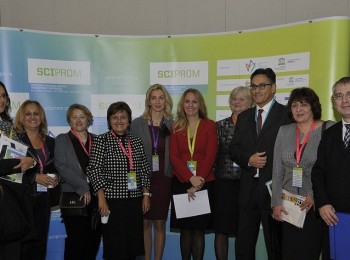
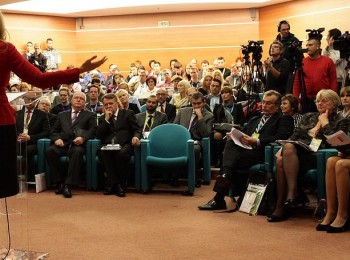 The First SEE Regional Science Promotion Conference (SCIPROM), is opened on October 2, 2013 in Belgrade, with the aim to bring together science promotion professionals, practitioners and enthusiasts to share experience and network in order to strengthen the link between science and society in our Region. In the current competitive global environment it is an imperative to enhance economic and social capacities by improving the educational structure of society, inspiring innovation and technological advancement and creating a milieu for appreciation of the value and benefits of knowledge.
The First SEE Regional Science Promotion Conference (SCIPROM), is opened on October 2, 2013 in Belgrade, with the aim to bring together science promotion professionals, practitioners and enthusiasts to share experience and network in order to strengthen the link between science and society in our Region. In the current competitive global environment it is an imperative to enhance economic and social capacities by improving the educational structure of society, inspiring innovation and technological advancement and creating a milieu for appreciation of the value and benefits of knowledge.
In the opening address, Minister for Education, Science and Technology development of Serbia Tomislav Jovanovic underlined, among others the importance of knowledge based actions, as well as the importance of drinking water for development.
Conference bring international experts and representatives of international organizations, research and educational institutions, science camps, science communicators, NGOs, private sector and media on board. ENV.net team participated.
This conference justify the path of ENV.net Serbia development linking European Integration, Knowledge based activities and sectors : Education, Science and Environment/Natural Resources.
Participation in two-day study tour for CSOs representatives
Office for Cooperation with Civil Society with the support of the OSCE Mission to Serbia organized a two-day study tour for CSOs representatives who are engaged in the field of protection and conservation of the environment,especially in terms of raising public awareness of the need to seal the flood as well as in activities related to the mapping of risks and developing plans to protect the environment from these natural disasters .
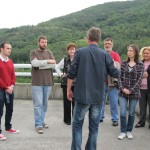
Purpose of this study tour was the promotion of enhanced mechanisms of public participation in the prevention and flood protection and mitigation of their consequences. The aim of these visits was CSOs capacity building for their greater involvement in decision-making related to water management. Dragana Grujičić, as the EASD representative, participated in this action.
Participants visited the following locations in Central and South Serbia: Lake Gruža, gravel pits near Kruševac and municipality Trgovište.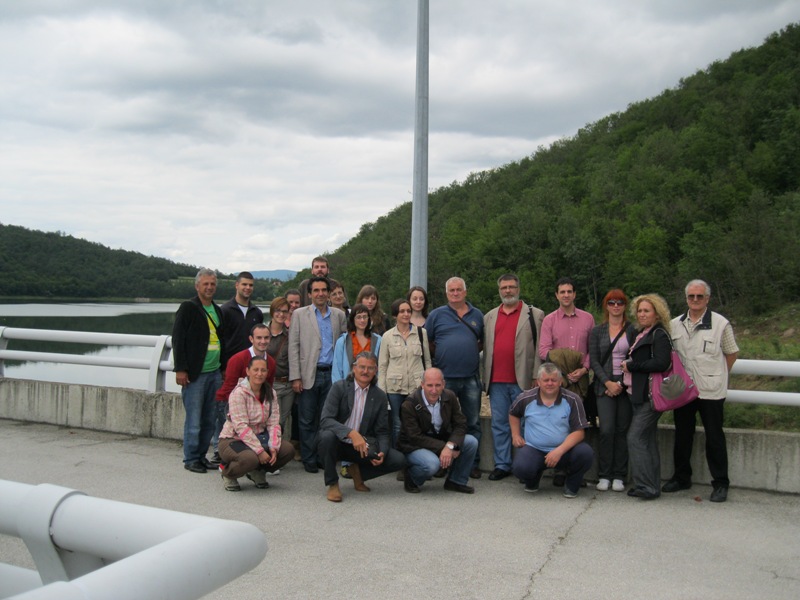
More than 120 participants at EnE13 conference/ENV.net Roundtable: 10 June, 2013 in Belgrade
The main messages from this participatory ENV.net event are: environmental sector activities should be knowledge based, and education for environment and sustainable development should be priority. Capacities and continuity is very important for inclusion environment in other sectoral policies. Conference is institutionally supported by Ministry of Energy, Development and Environmental Protection and Ministry of Natural Resources, Mining and Spatial Planning, as well as National Commision for UNESCO. Draft Agenda ( Agenda FINAL on 06 06, strane 2-8 ) and CD Proceeding of Papers are published. This Conference is UNEP WED event.
At the opening session, Mrs. Prof. dr Zorana Mihajlović, Minister of Energy, Development and Environmental Protection of Republic of Serbia, Mr. Christoph Eichen, First Secretary Economic Cooperation, Embassy of Germany in Serbia, Mr Andrew Headey, EC Delegation in Serbia, Mr Jürg Staudenmann Deputy Resident Representative UNDP Serbia, SEIO Representative, European Integration Office, Government of the Republic of Serbia, Mr. Prof dr. Ivica Radović, Assistant Minister, Ministry of Education, Science and Technological Development of the Republic of Serbia, Mr Klaus Schmidt – Team Leader of IMPACT project – Deutsche Gesellschaft für Internationale Zusammenarbeit (GIZ) GmbH, Representative of Eptisa Regional Office for SEE, as well as Mr Dušan Stokic of Serbian Chamber of Commerce and Industry, shared the views related environmental sector and EU Integration. Event is officially oppened by Mr. Goran Trivan, Secretary for Environmental Protection, City of Belgrade.
Municipal Infrastructure Support Programme (MISP), EU-IPA Project, EPTISA, is presented by Dragana Vasić, Deputy Team Leader. MFA, LCA and Cleaner Production as Analitical Tools in Environment are presented by , prof. dr Hristina Stevanović Čarapina, IMPACT project- Deutsche Gesellschaft für Internationale Zusammenarbeit (GIZ) GmbH representative.
The Importance of the Participation of Civil Society Organizations in Decision-Making Process is addressed by Milena Banović, Office for Cooperation with Civil Society, Government of the Republic of Serbia Representative .
Analysis of current status of EU Environmental Integration and ENV.net project is presented by Prof dr Nataša Žugić Drakulić, National Coordinator, ENV.net Project .
Coordinator for Conference is Doc dr Dunja Prokić. Conference chair person is Prof f dr Andjelka Mihajlov.
Conference is supported by: Eptisa Regional Office for SEE, Hemofarm fond i Coca Cola Hellenic.
Selected presentation: Dragana Vasić EnE13 -MISP for Serbia
More selected presentations in Serbian.
Minutes from event are posted in gallery.
Reported by ACUNS, UNEP, FEE.
———————————————————————————————————————————
On behalf of Organizing Committee of the ninth Regional Conference “Environment to Europe-EnE13”, we want to inform you that the conference will be held on 10 June, 2013, presenting one of the events for World Environment Day (UNEP), as well as conference supporting EU accession process in sector Environment through project “Development of the ENV.net in West Balkans and Turkey: giving citizens a voice to influence the environmental process reforms for closer EU integration”. Serbian Ministry of Energy, Development and Environmental Protection acknowledged the importance of this Conference.
The theme for this year’s World Environment Day celebrations is Think.Eat.Save. Think.Eat.Save is an anti-food waste and food loss campaign that encourages you to reduce your foodprint.
Focus thematic issue this year is Local Environment. Each year EnE Conferences have different thematic focus.
We are inviting you to active participate on the Conference Environment to Europe – EnE13, either by preparing and presenting your paper, or by contributing as an auditor and participant (f application form_EnE13, Gidelines for paper preparation EnE13) .
Invitation is also distributed through FEE and ACUNS.
Application forms (with or without paper) and abstracts-papers send using email contact: conference.ene13@
Important dates:
Deadline for submission of applications form (for participants wishing to participate with paper): April, 15th
Deadline for submission of abstracts: April, 25th
Abstract acceptance notification: May, 6th
Deadline for submission of paper (extended abstracts): May, 15th (3-6 pages, in English or in Serbian / other language from former Yugoslavian Republics with Abstract in English)
Paper acceptance notification: May, 27th
Early registration deadline: May, 27th
Late registration deadline: May, 31st
Deadline for submission of application form without paper: May, 31st
Conference: June, 10
Participation fee :
Registration fee paid by May, 23 is 55 €
Regular price registration fee is 100 €
Payment: for details / account, please contact organizers by Email
Students are exempt from paying the registration fee.
Conference (EnE conferences) contributes to: EU and Accession, Regional Cooperation, International Cooperation, UNEP promotion , represent Scientific and other Conferences, Educational Signals and Courses, Scientific Signals and Projects, Promotion of Science, as well as Environmental Experts’ Networking
_______________________________________________________________________________________________________

